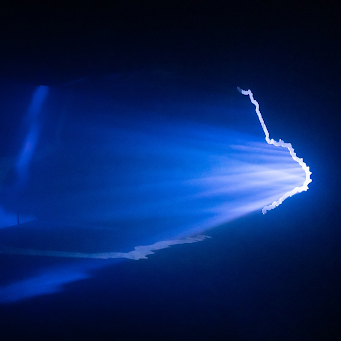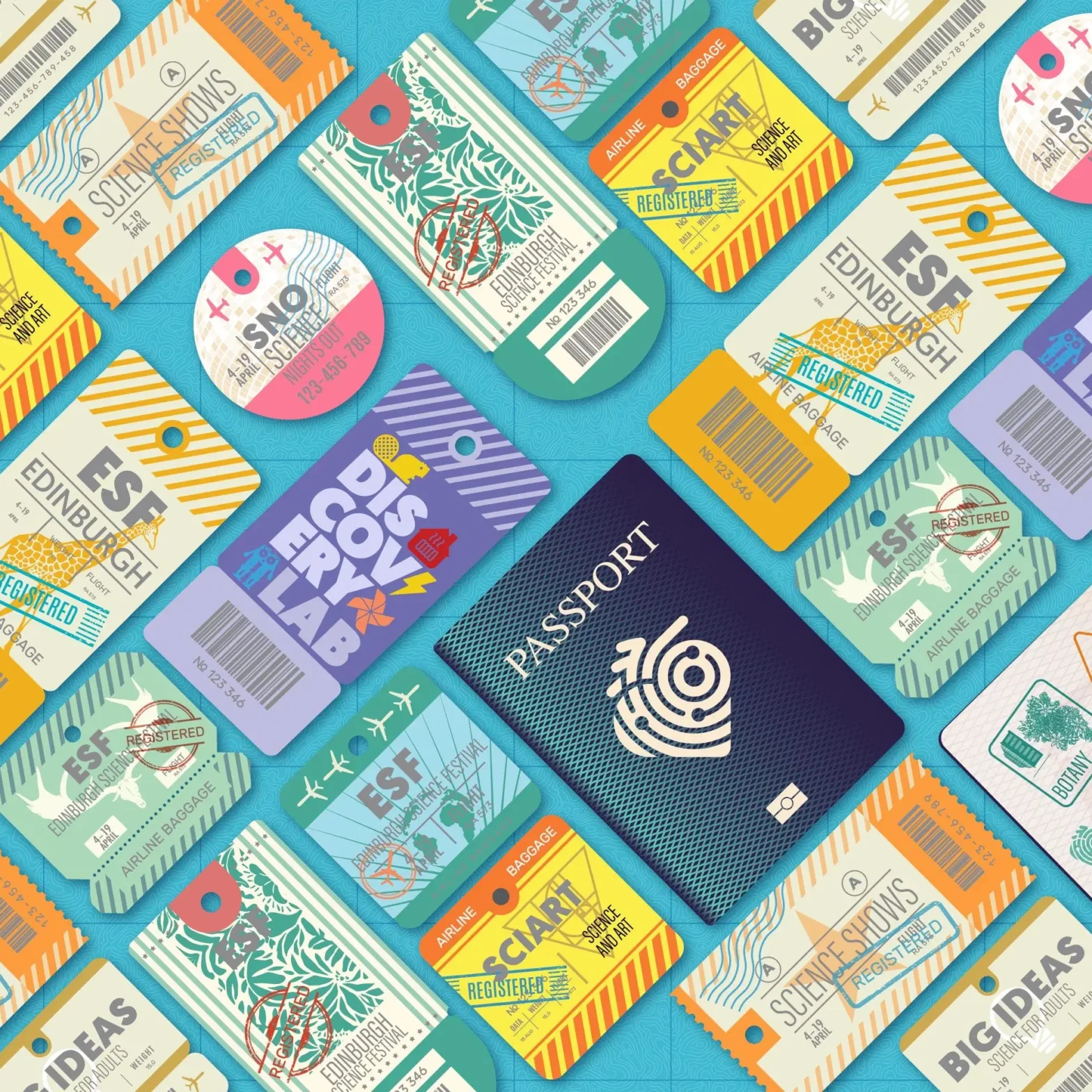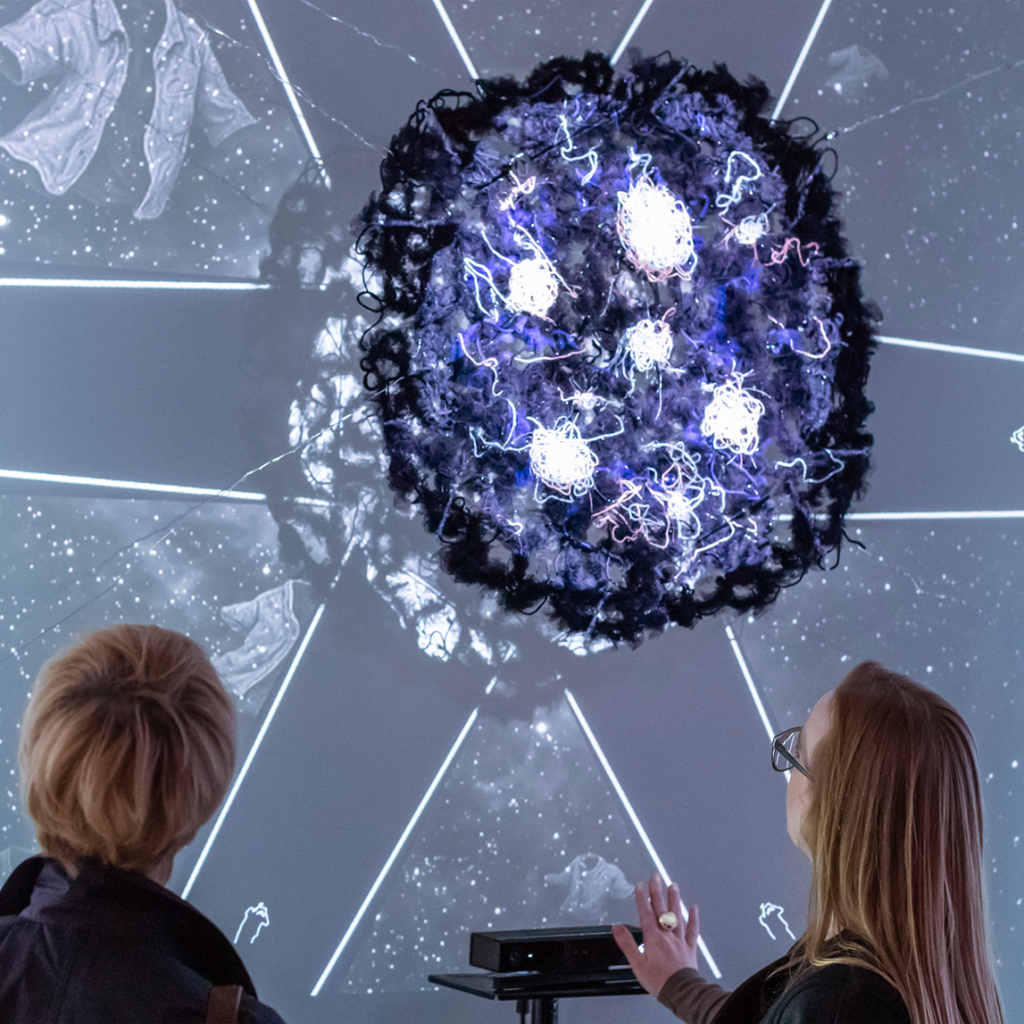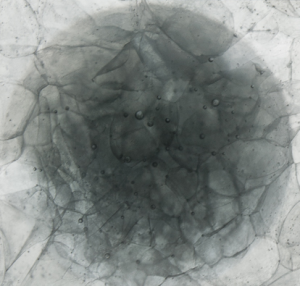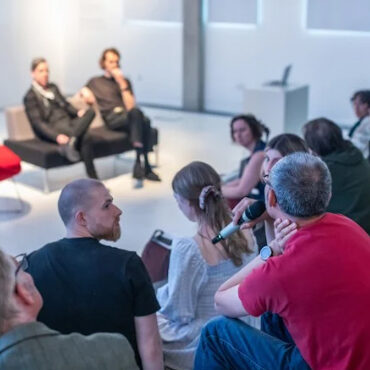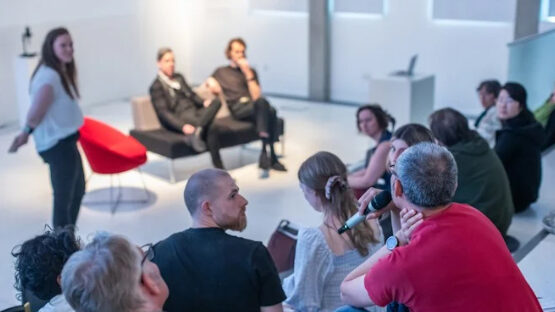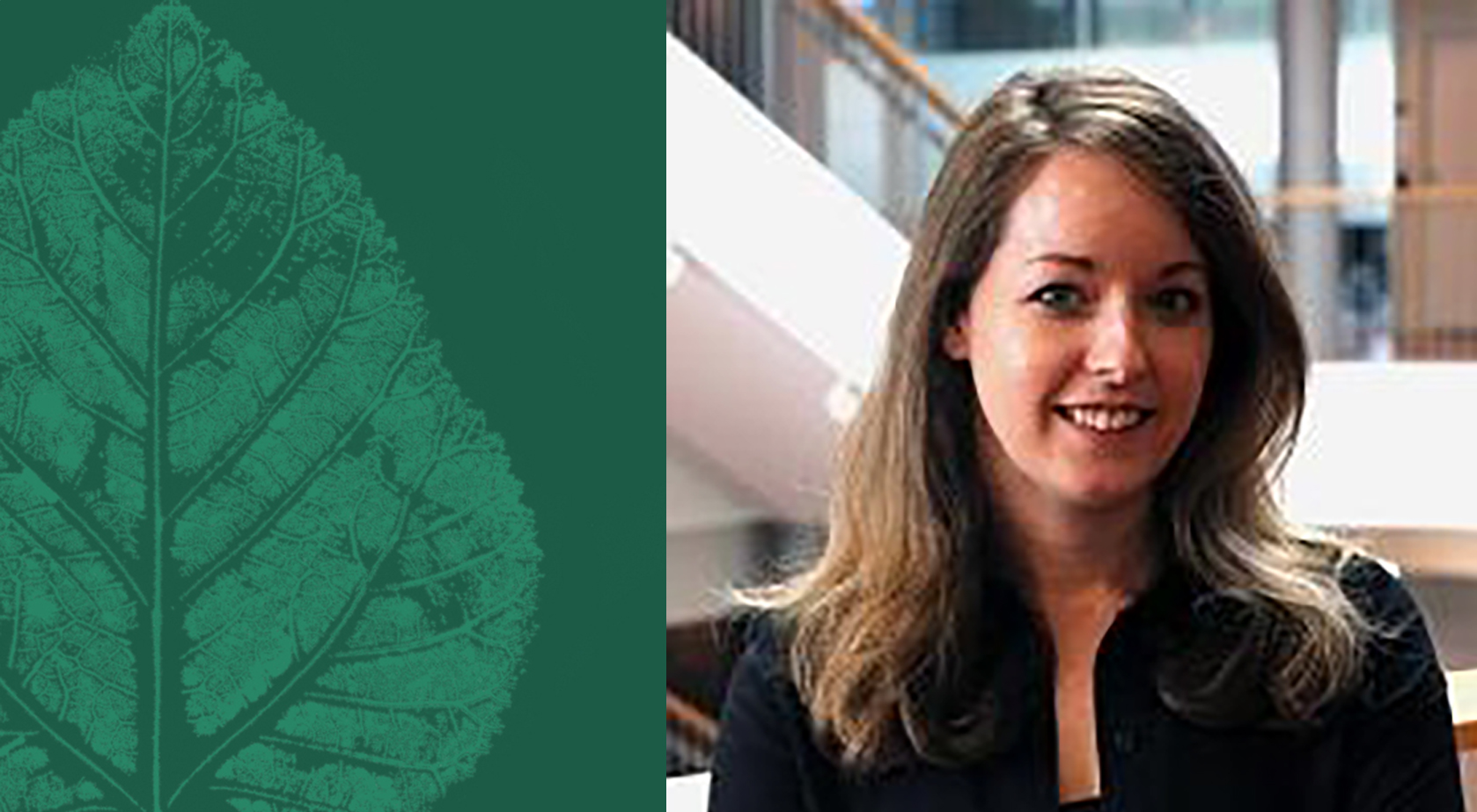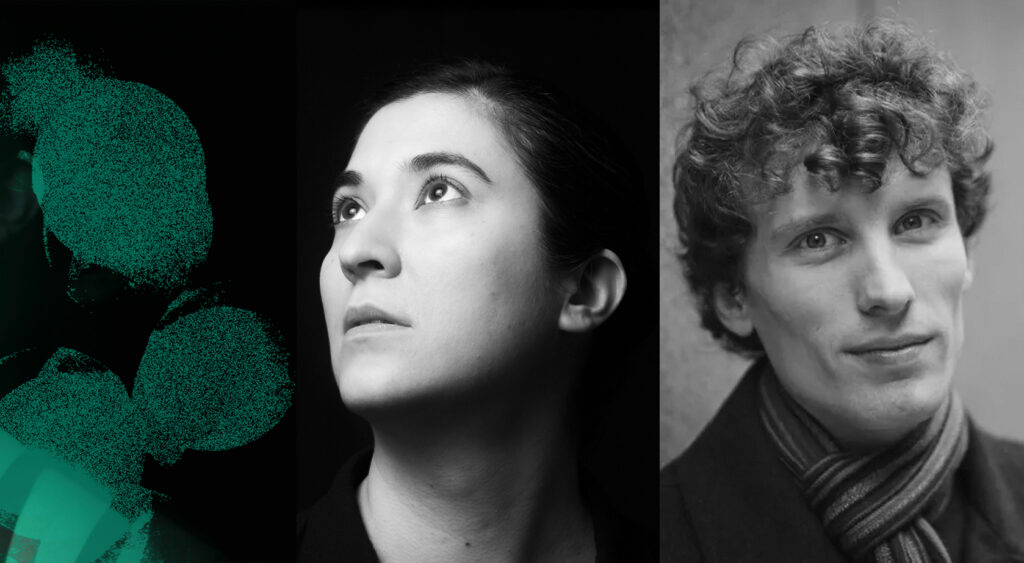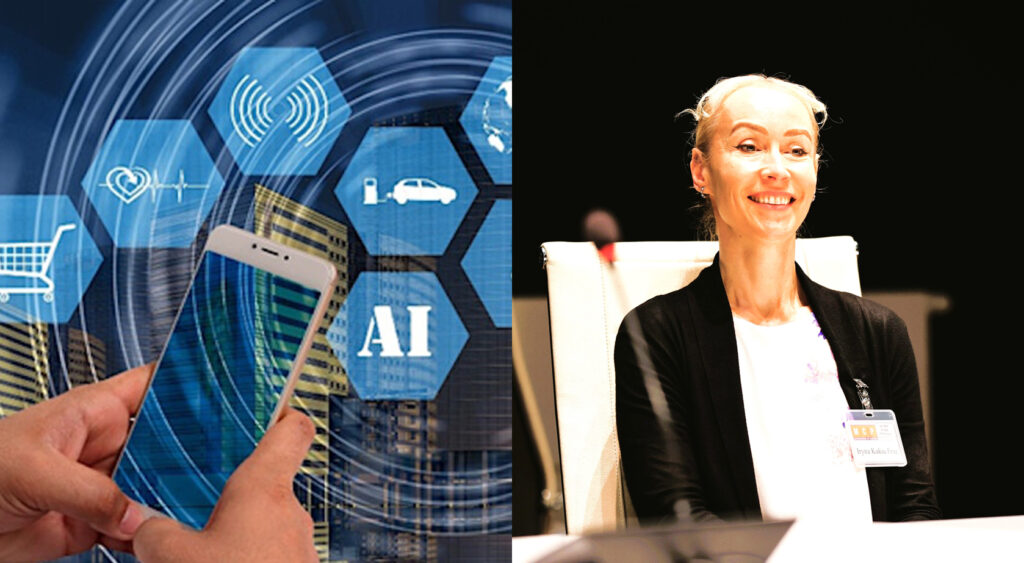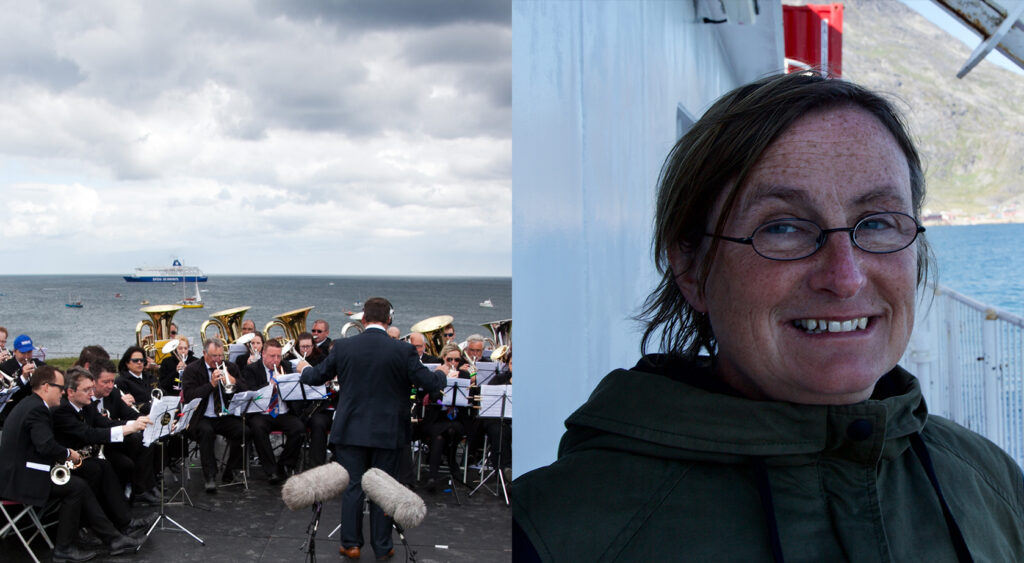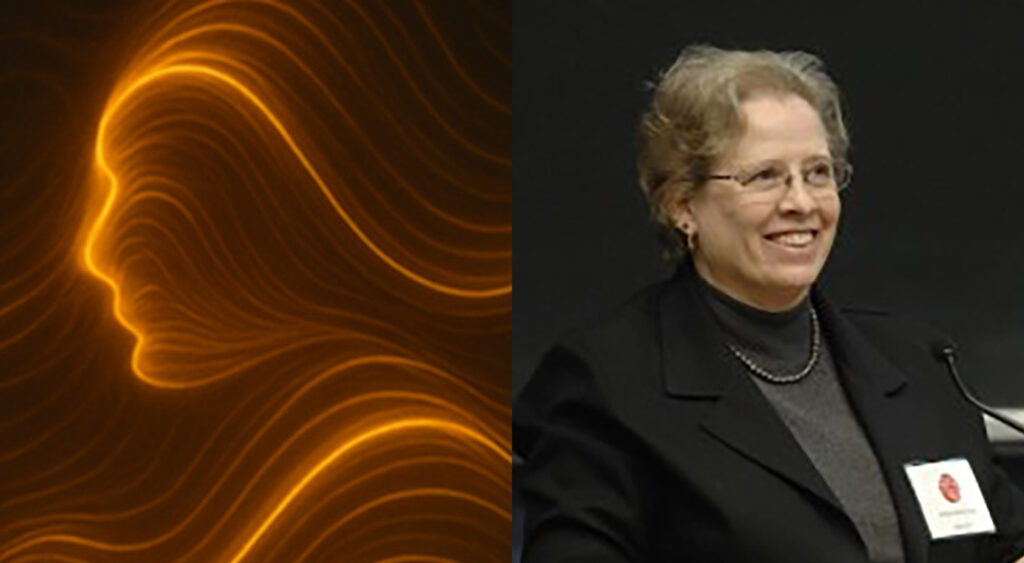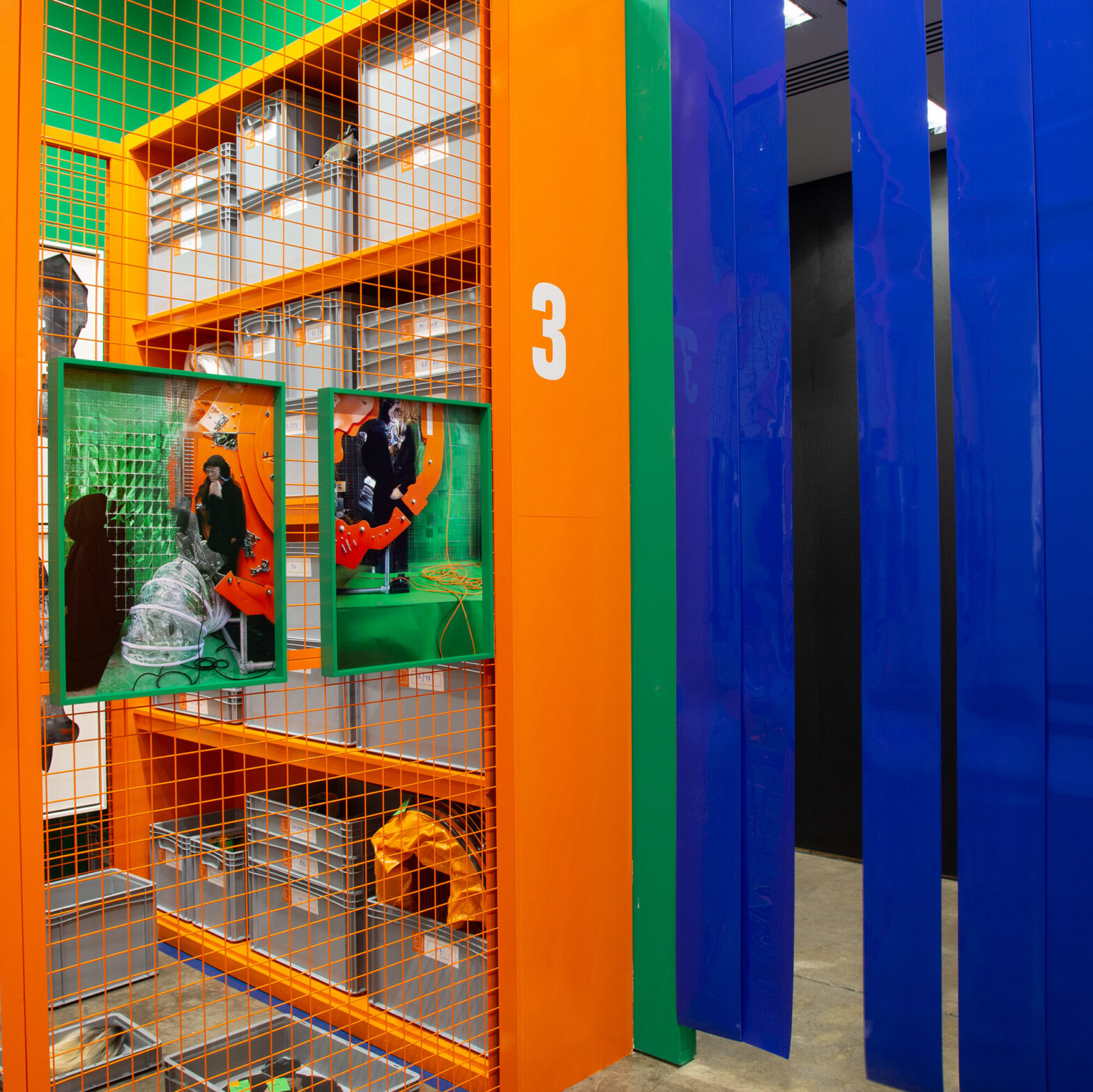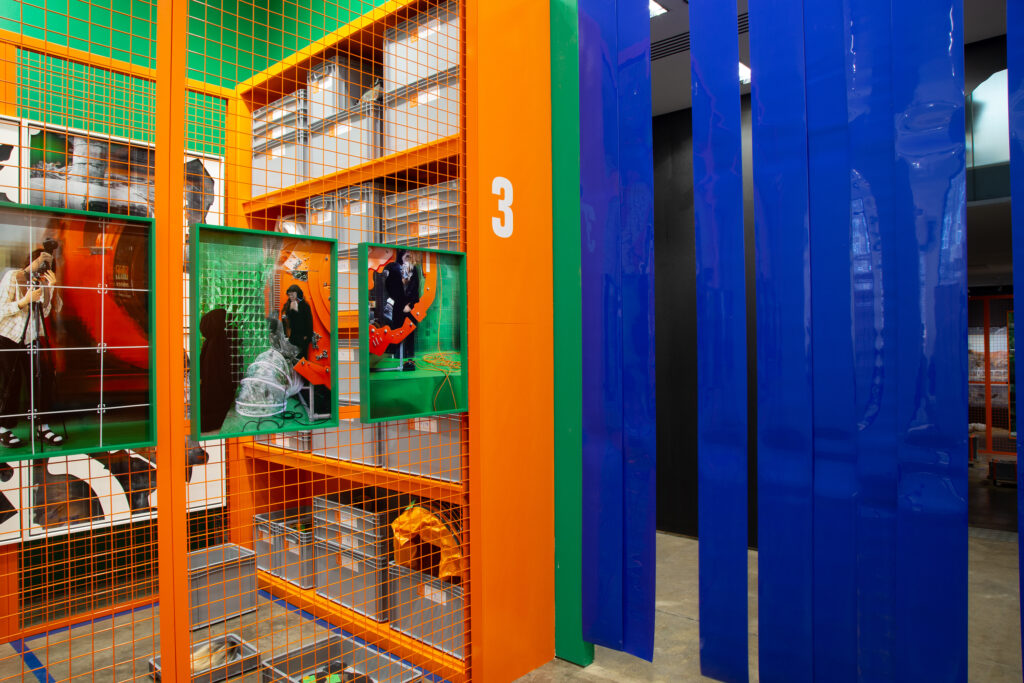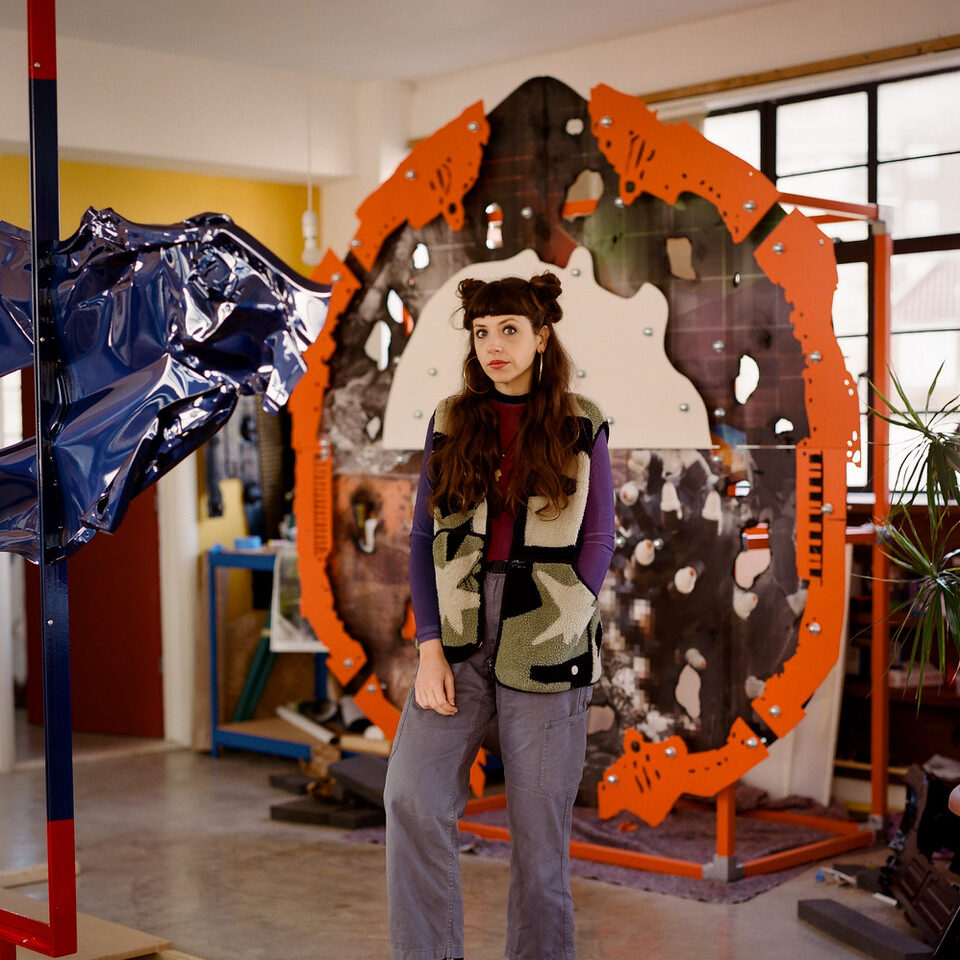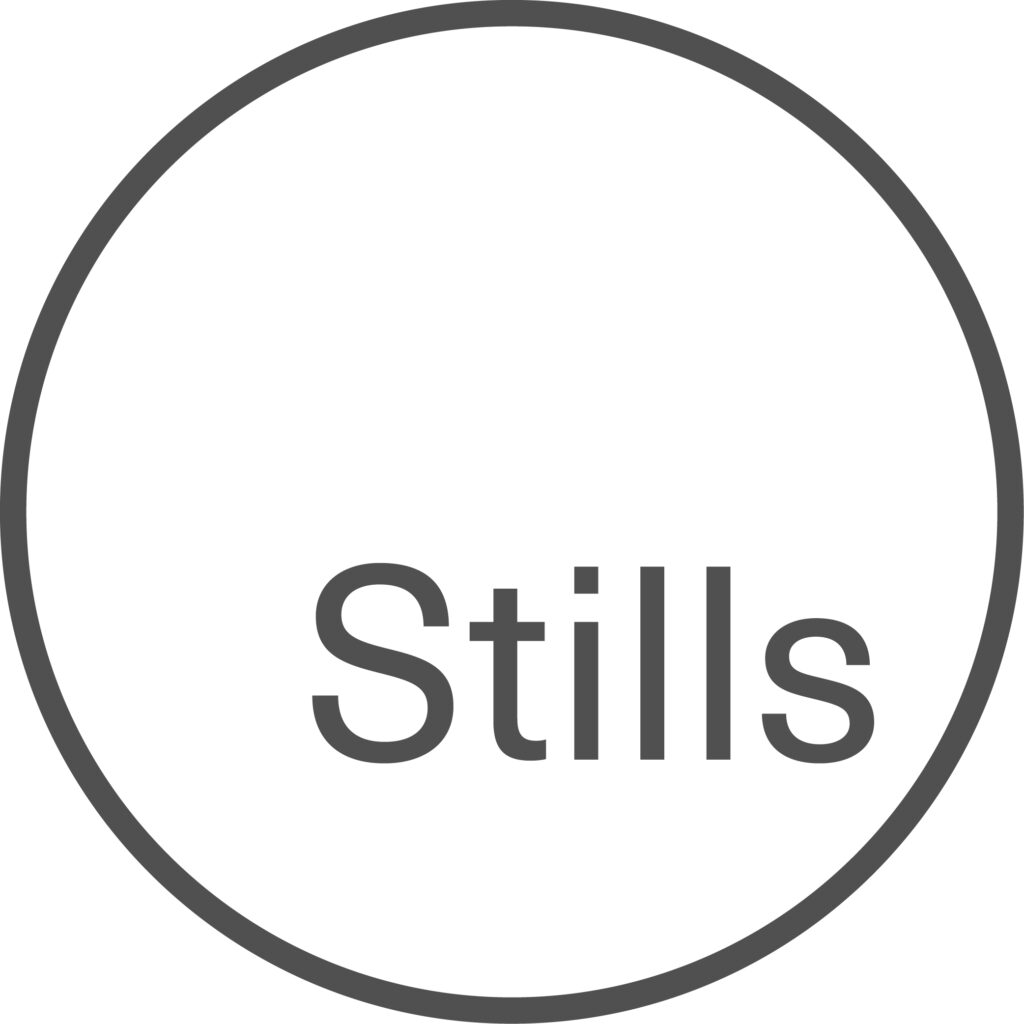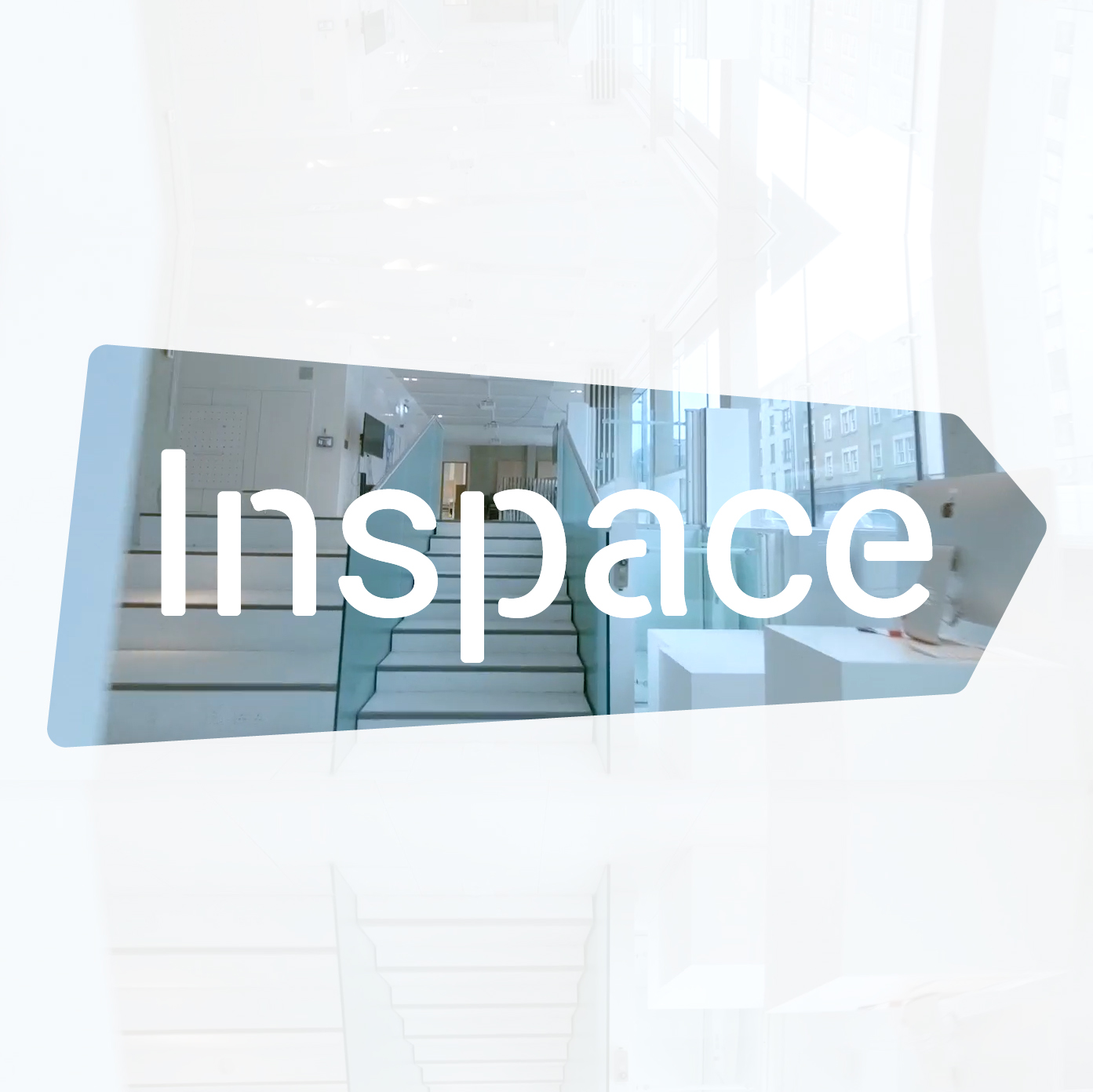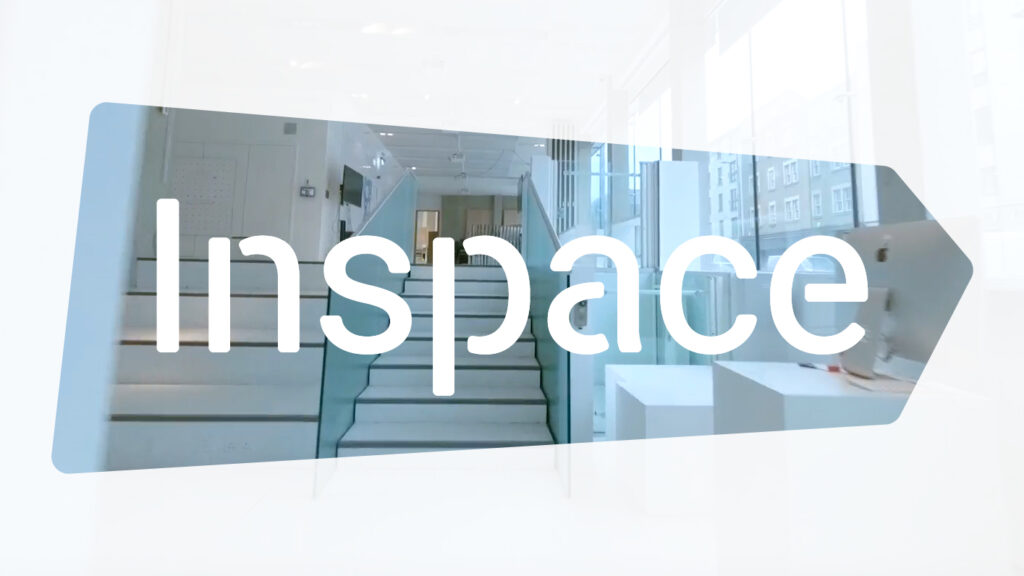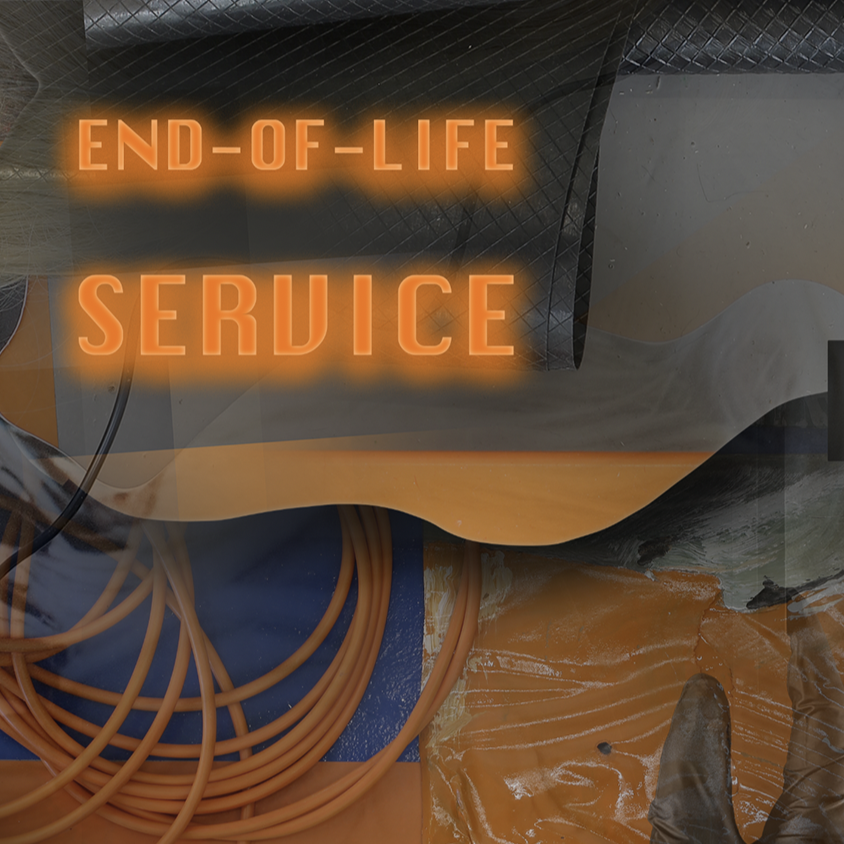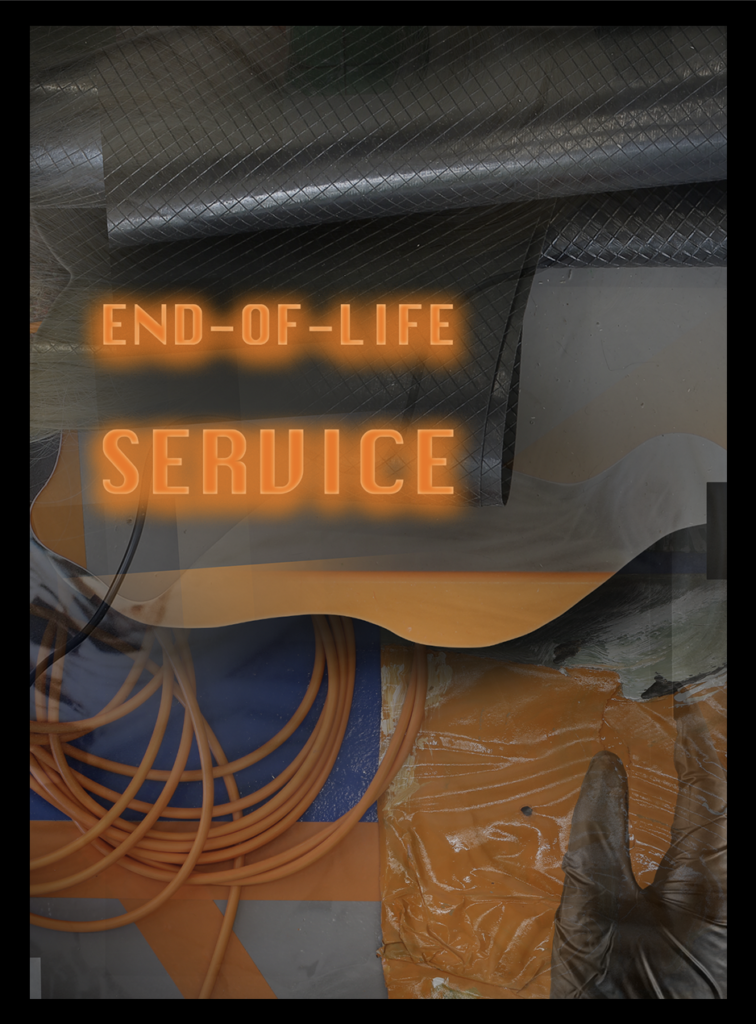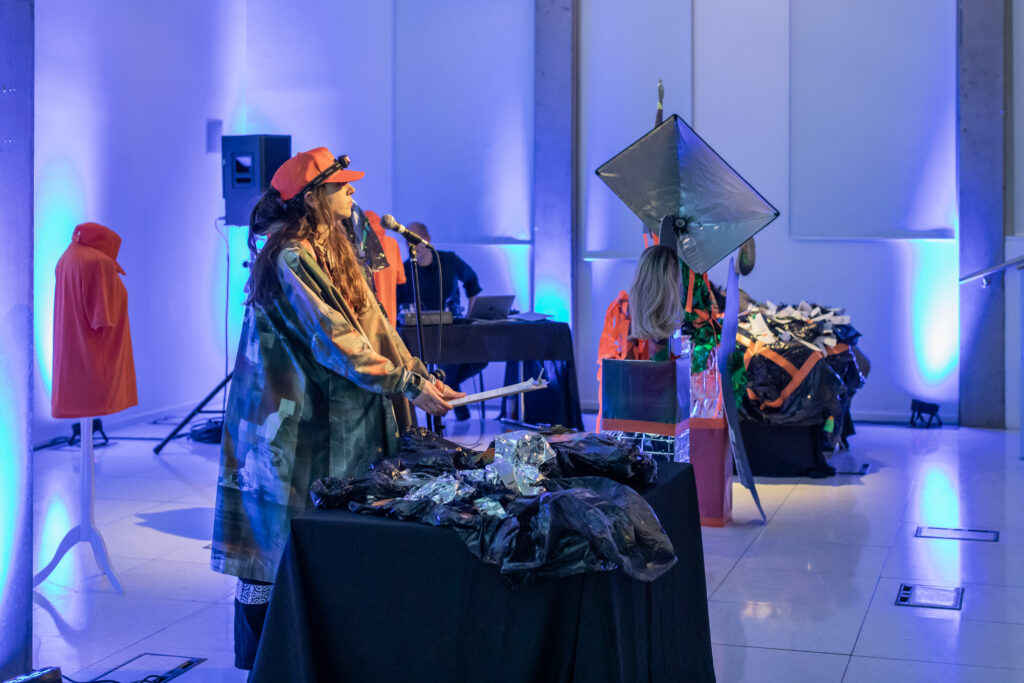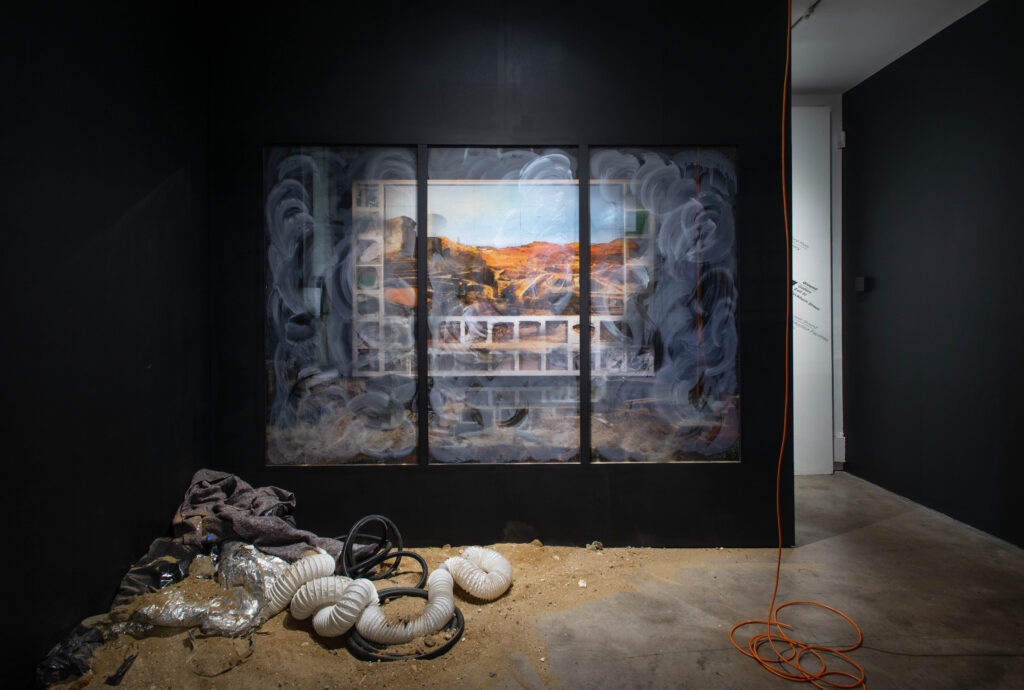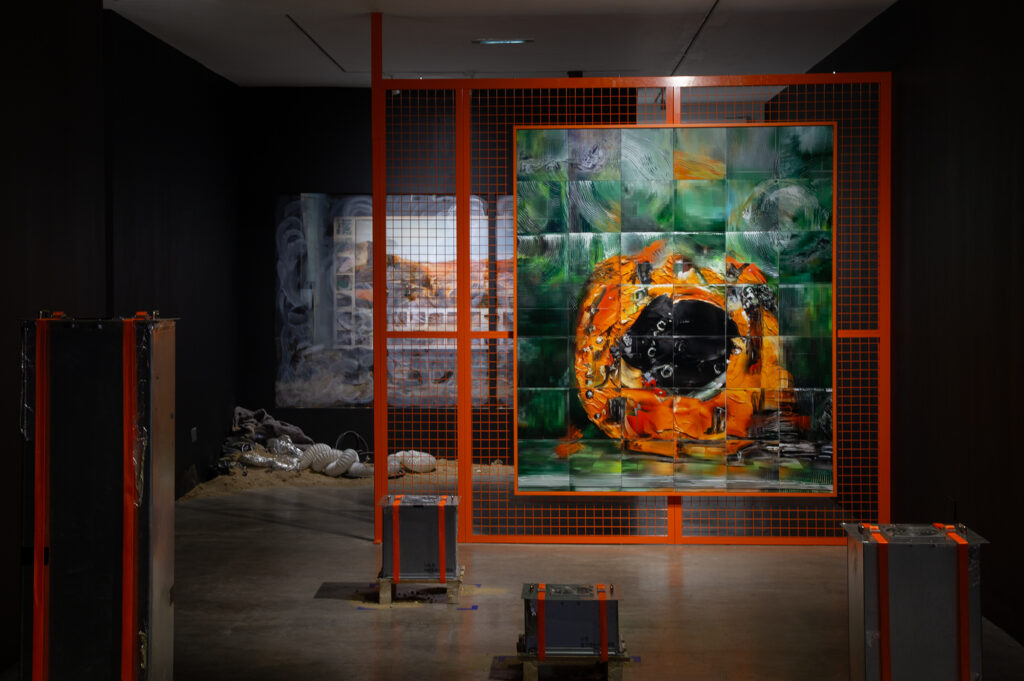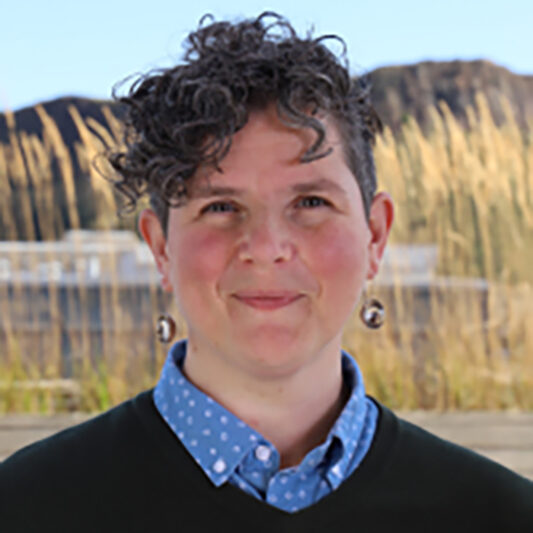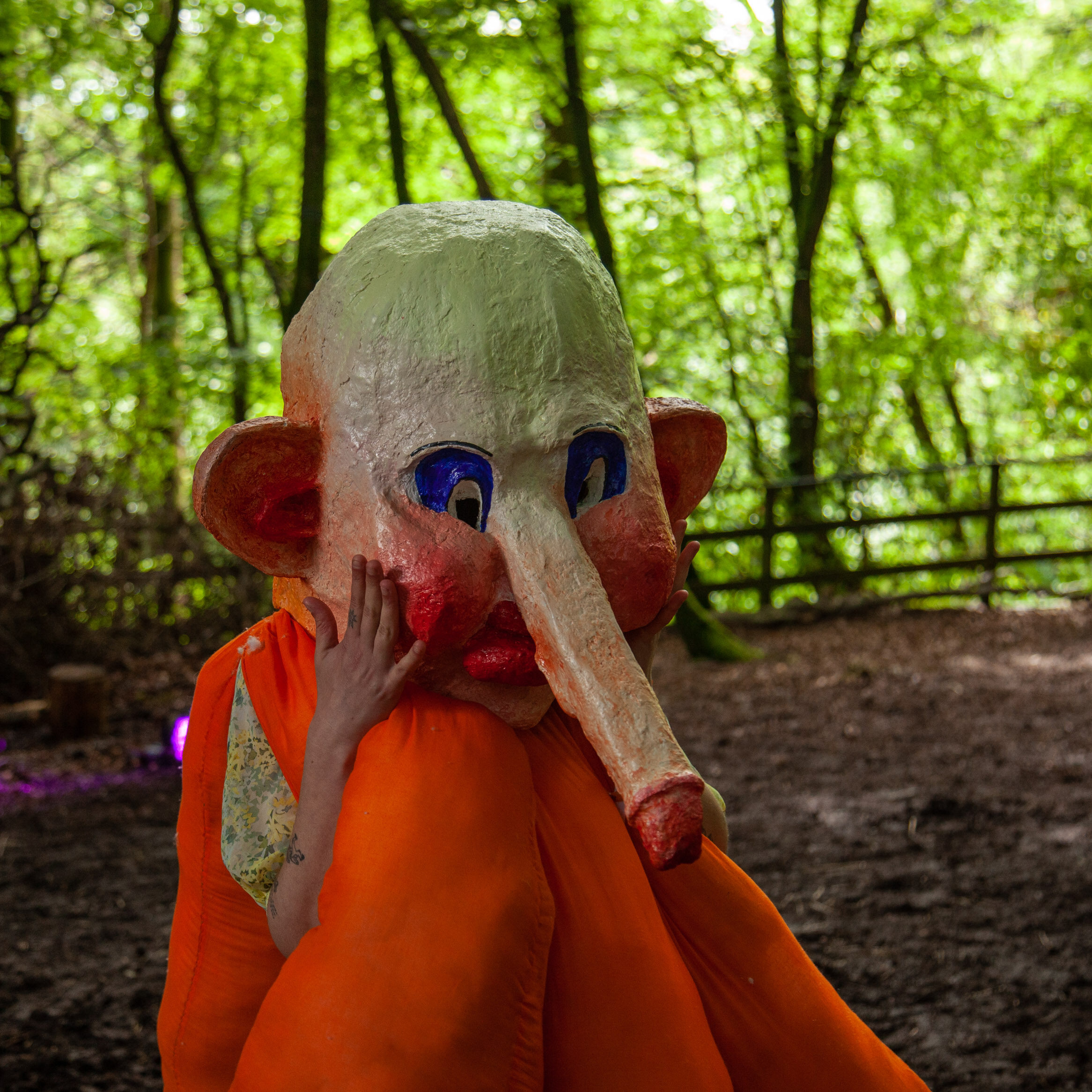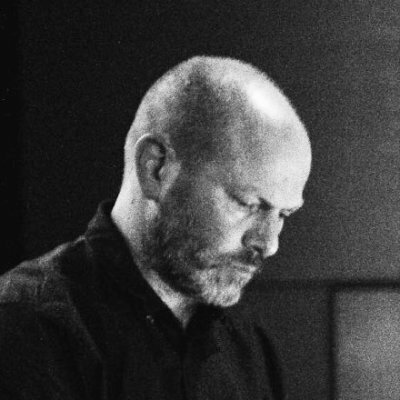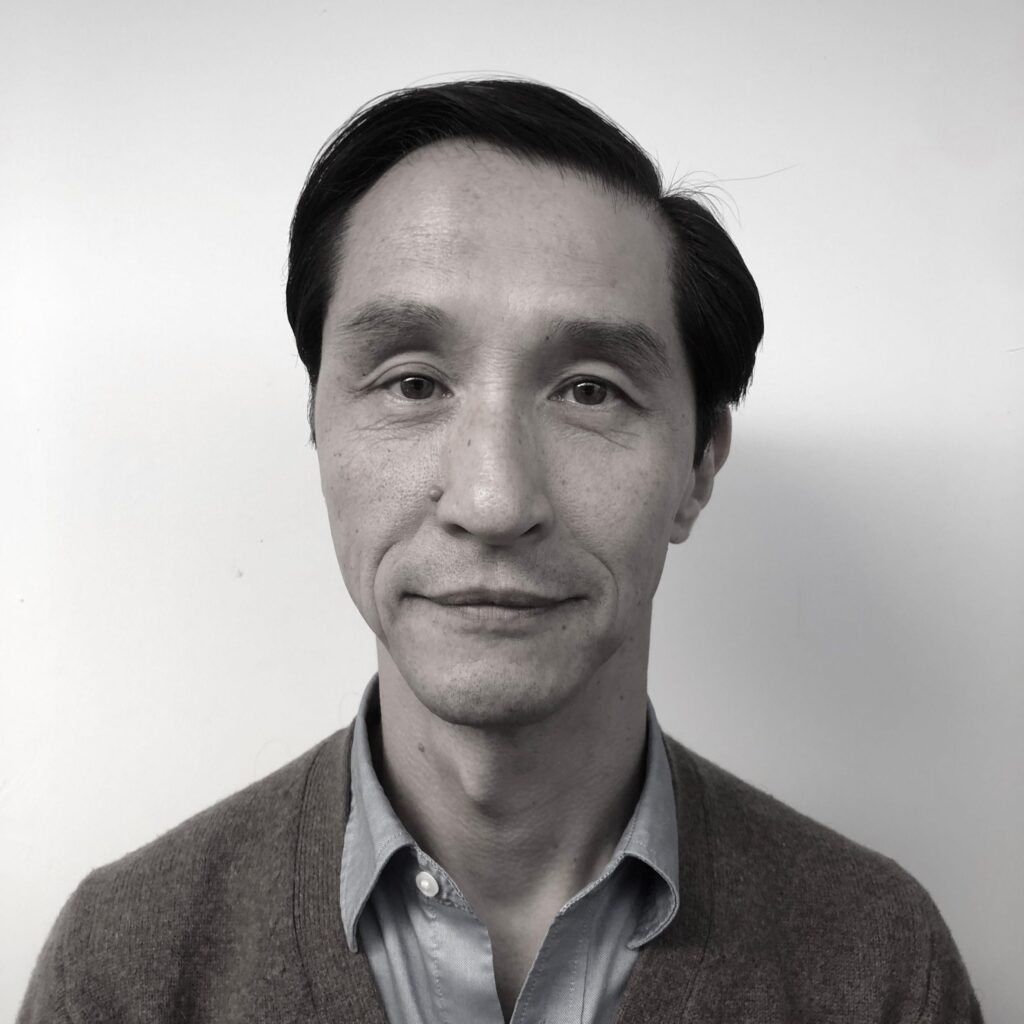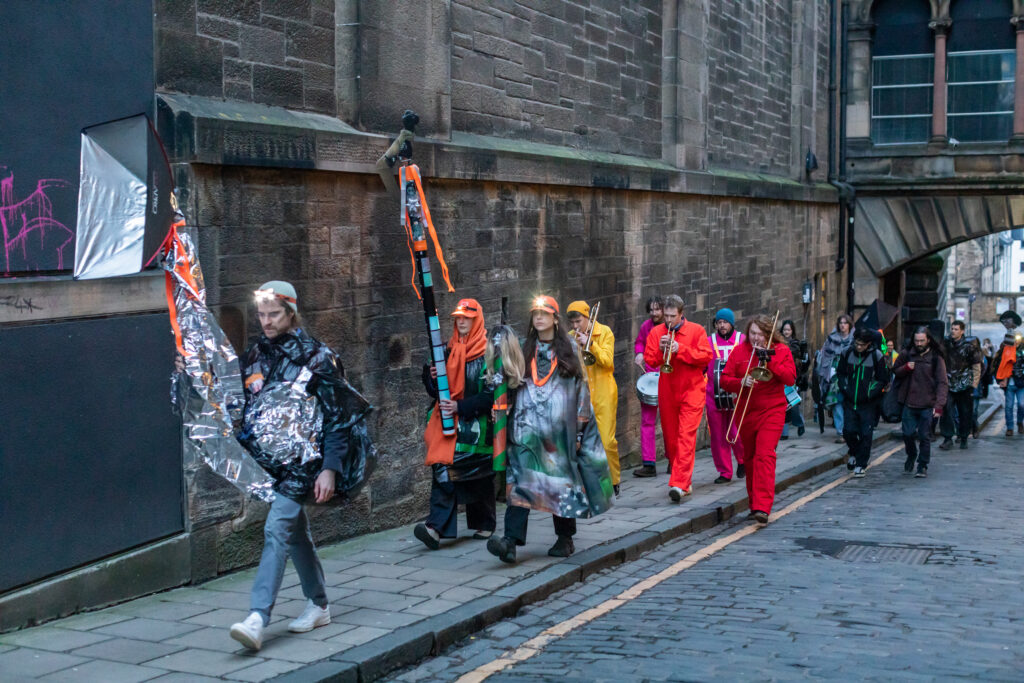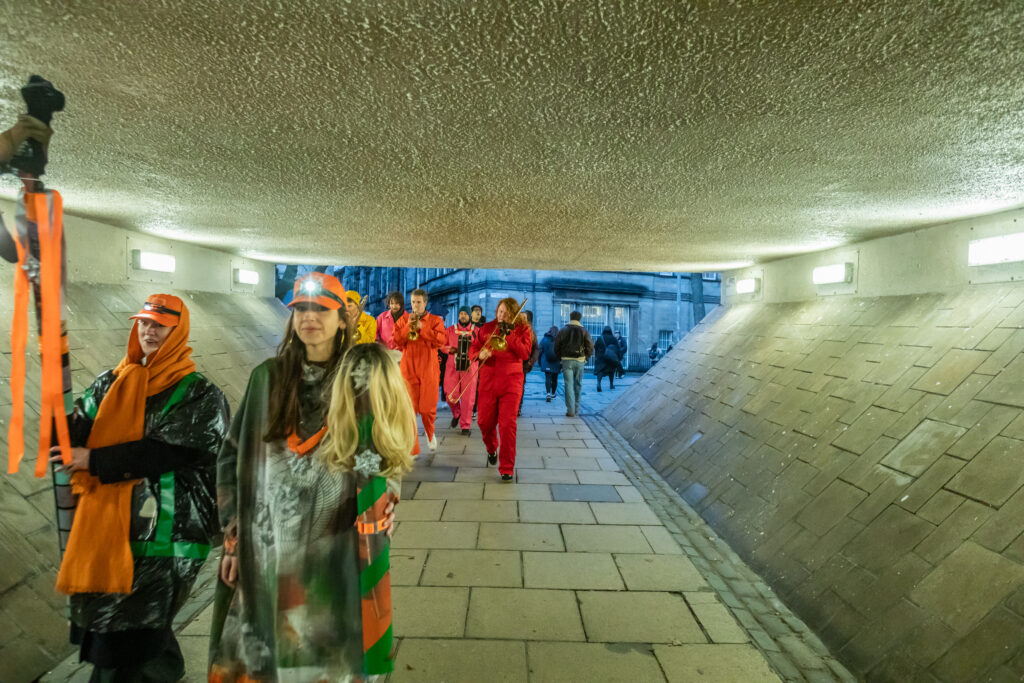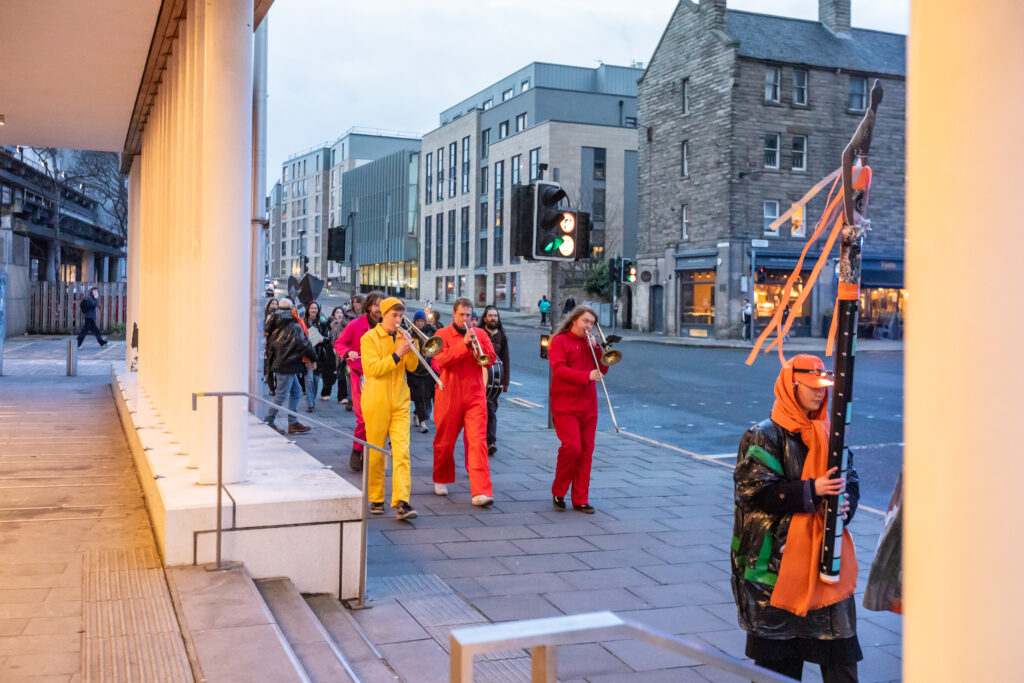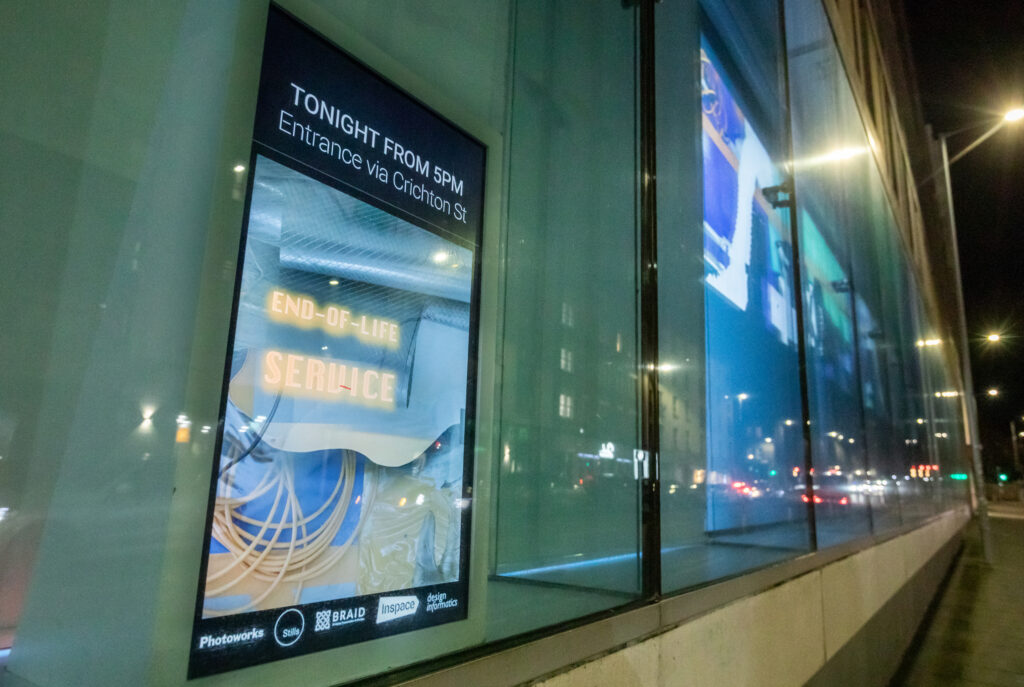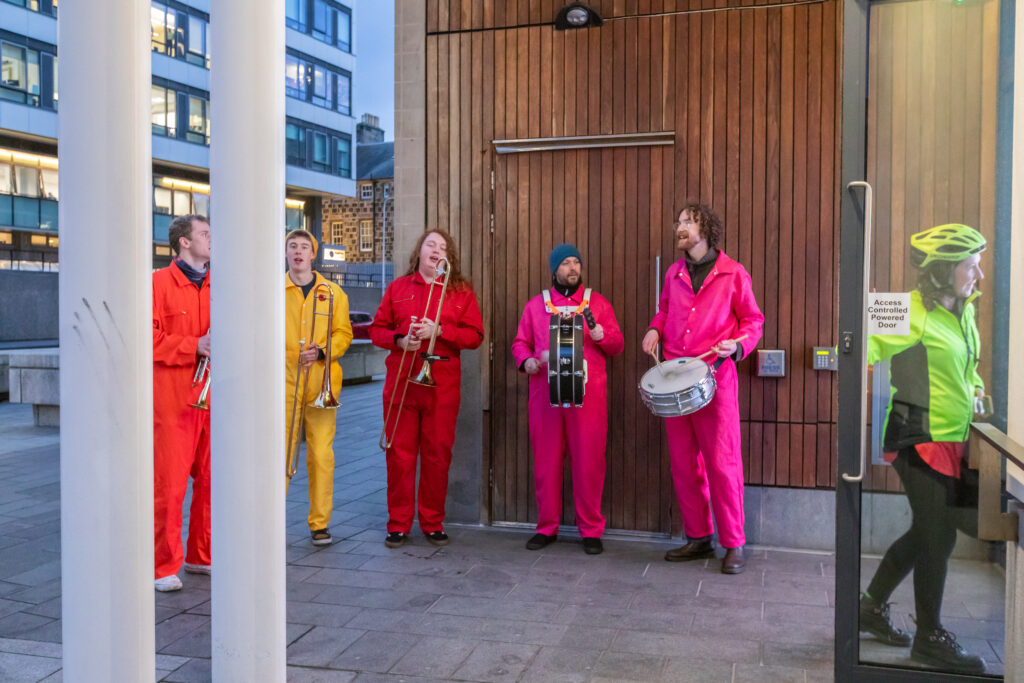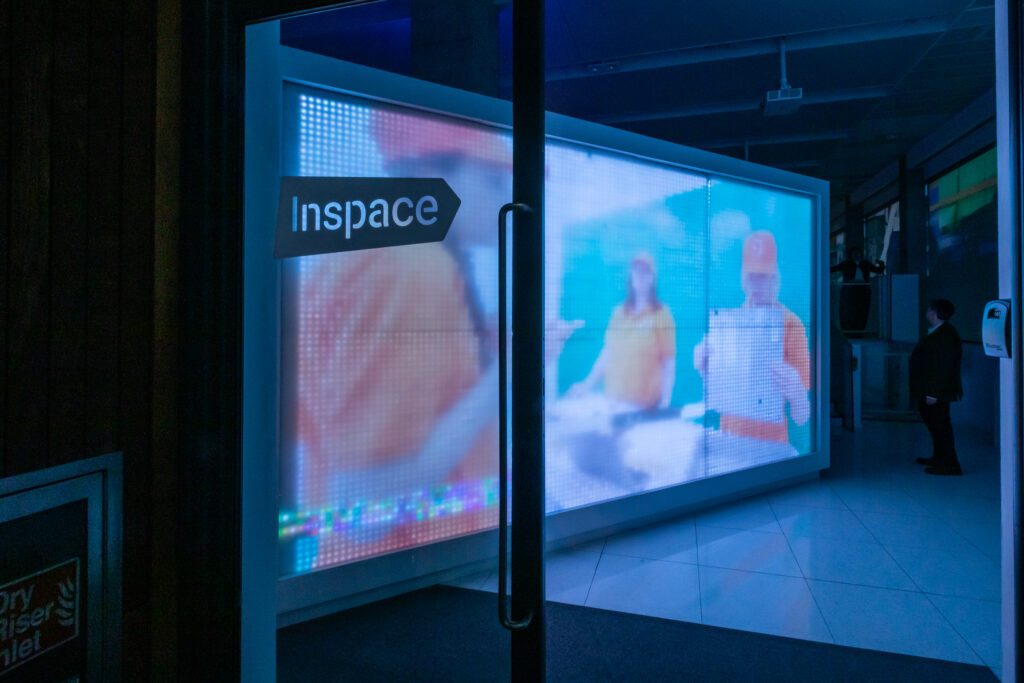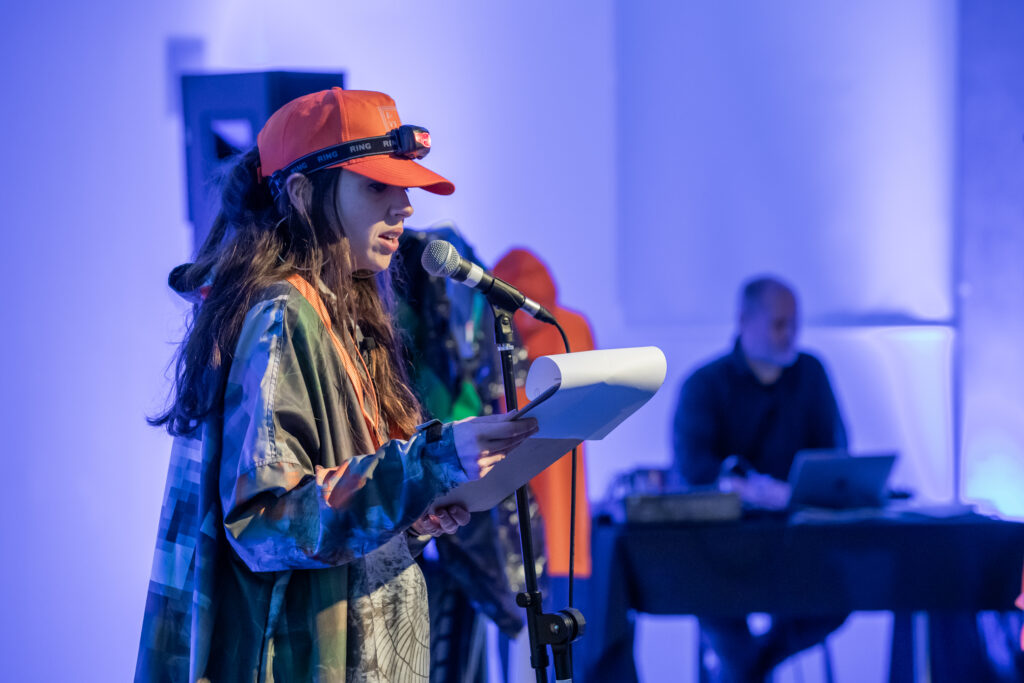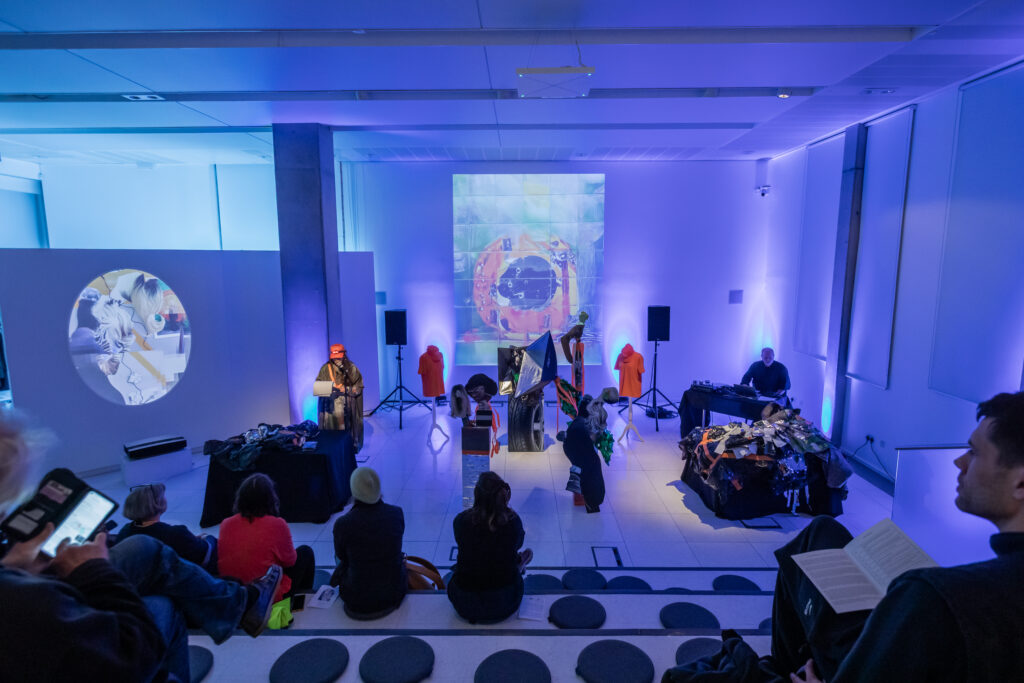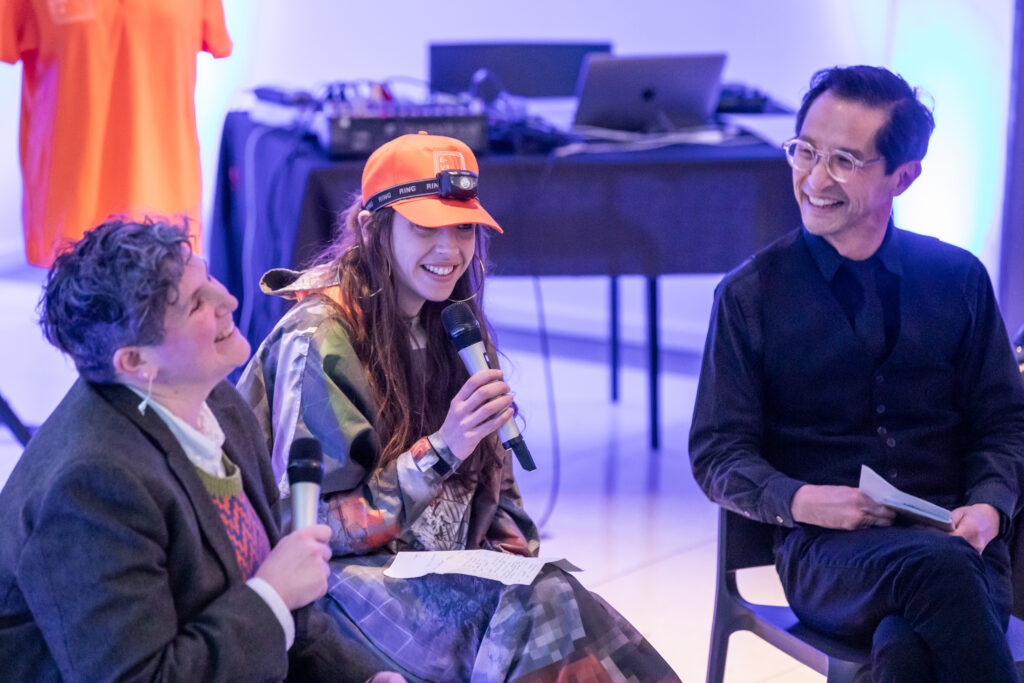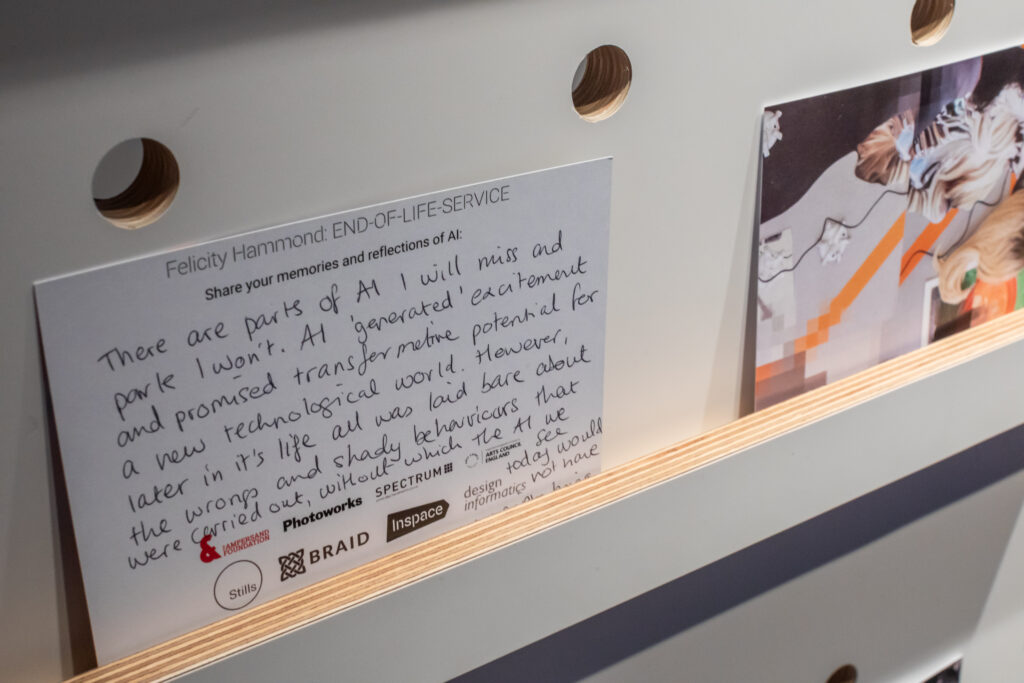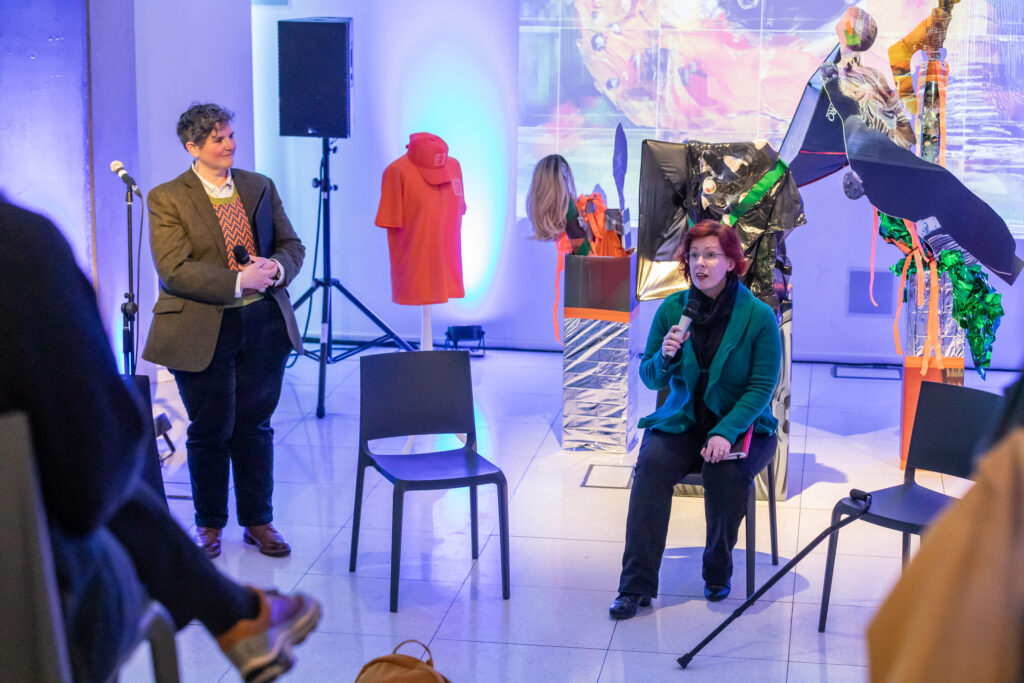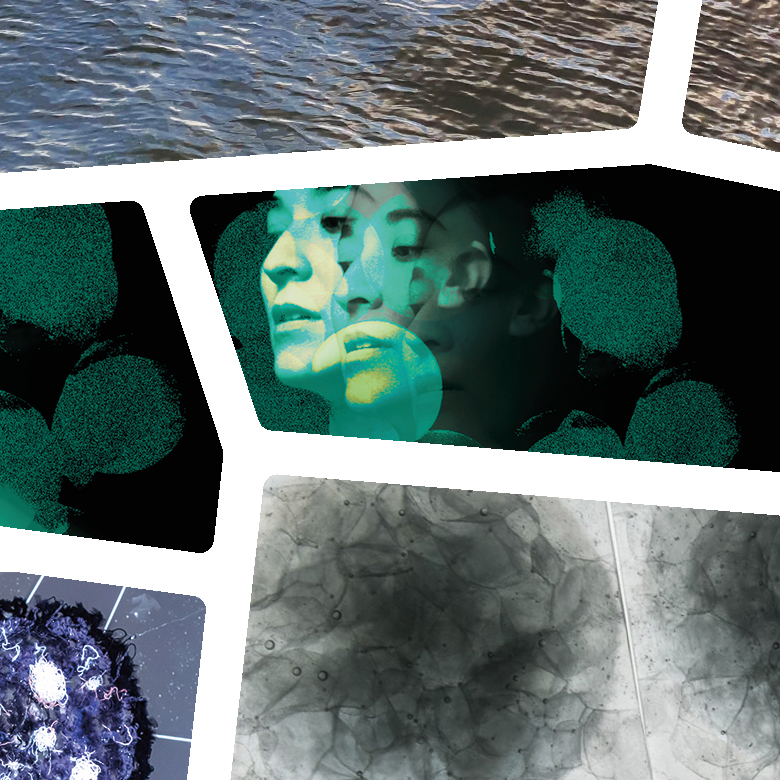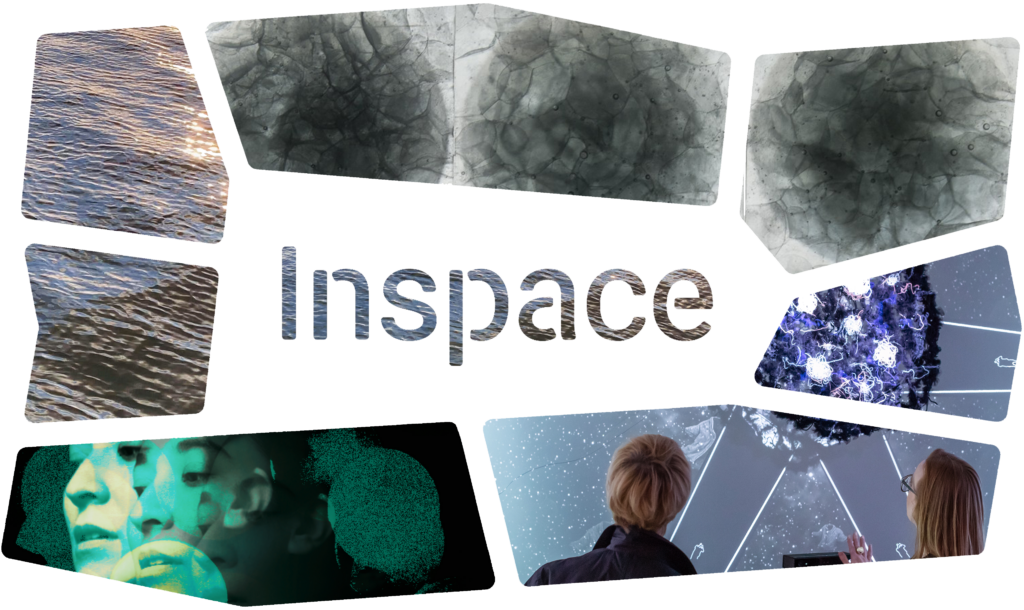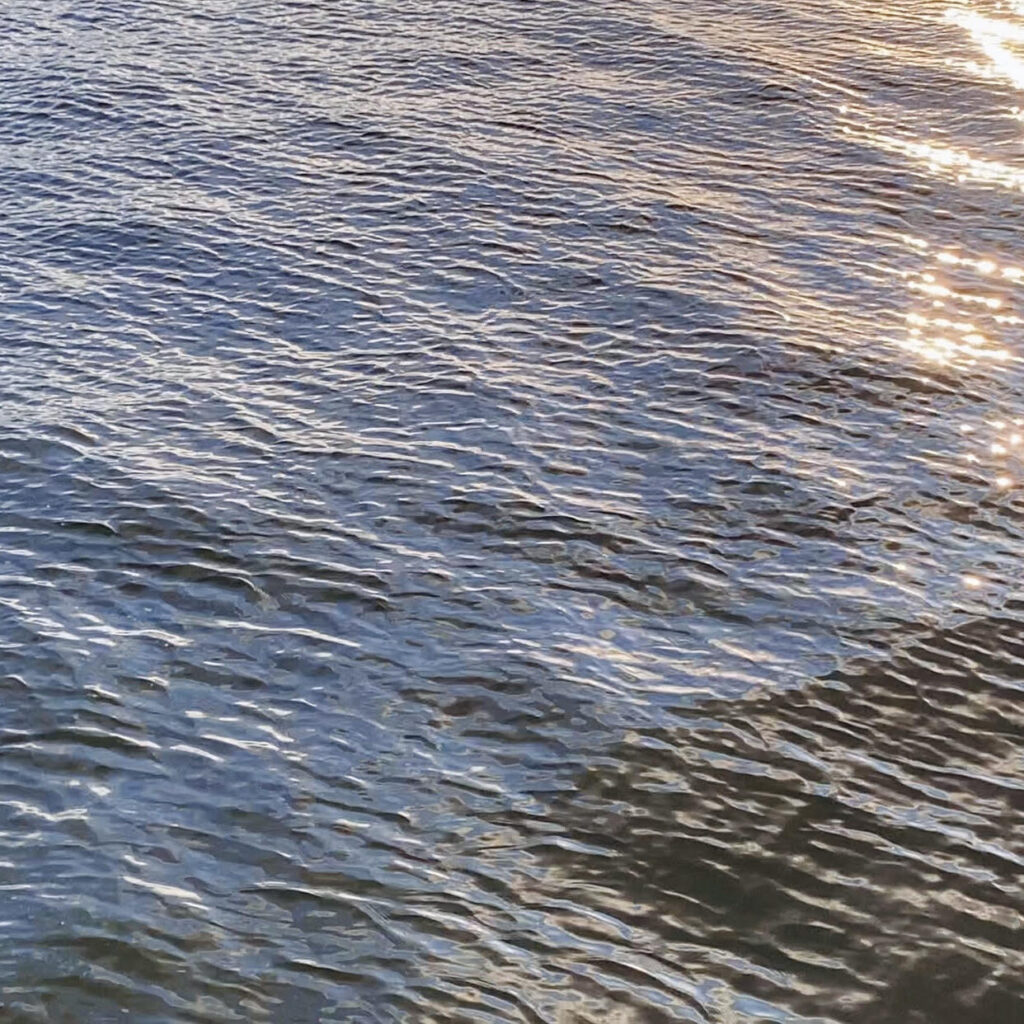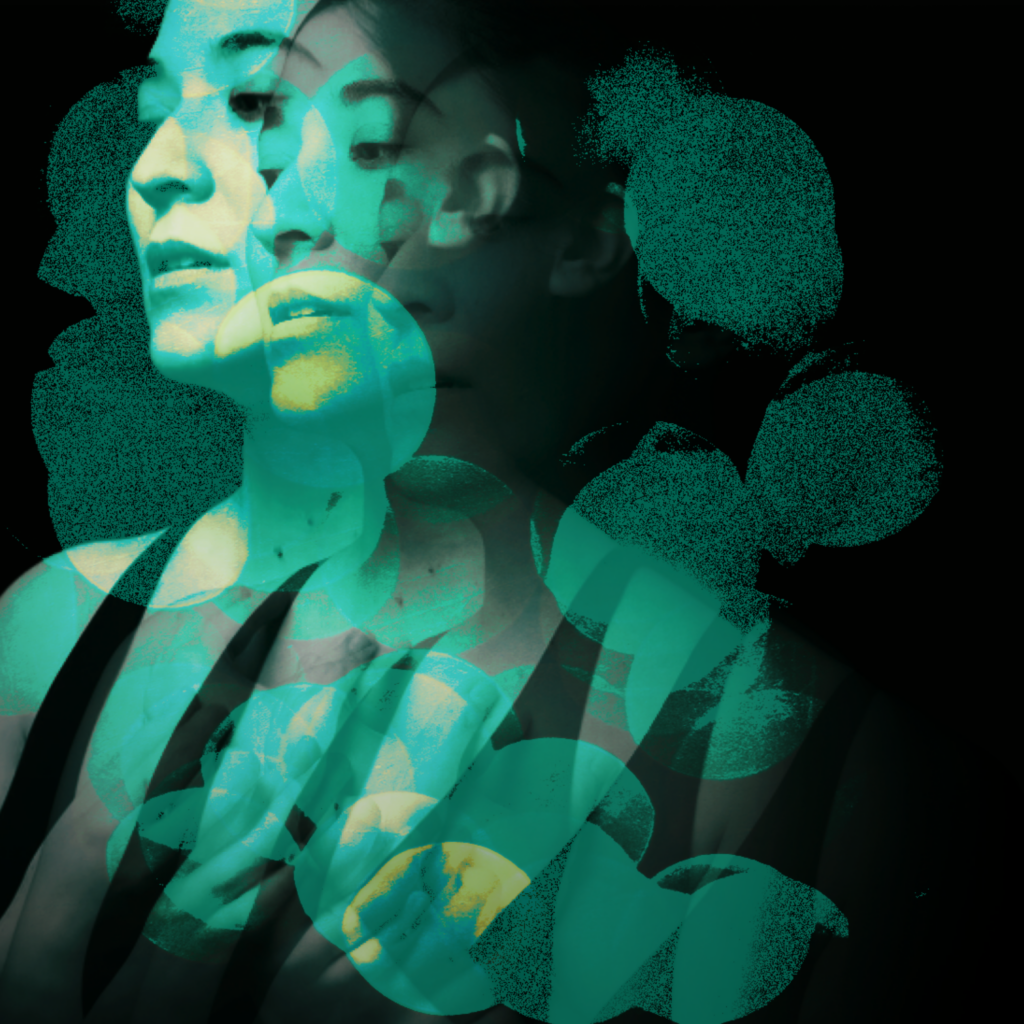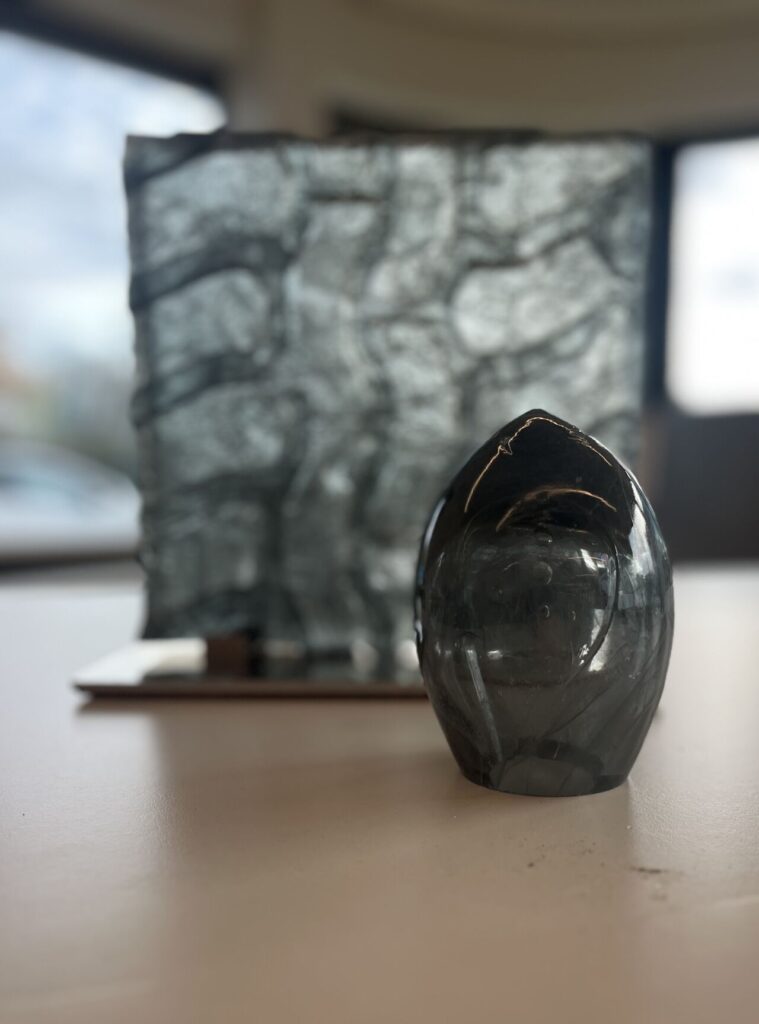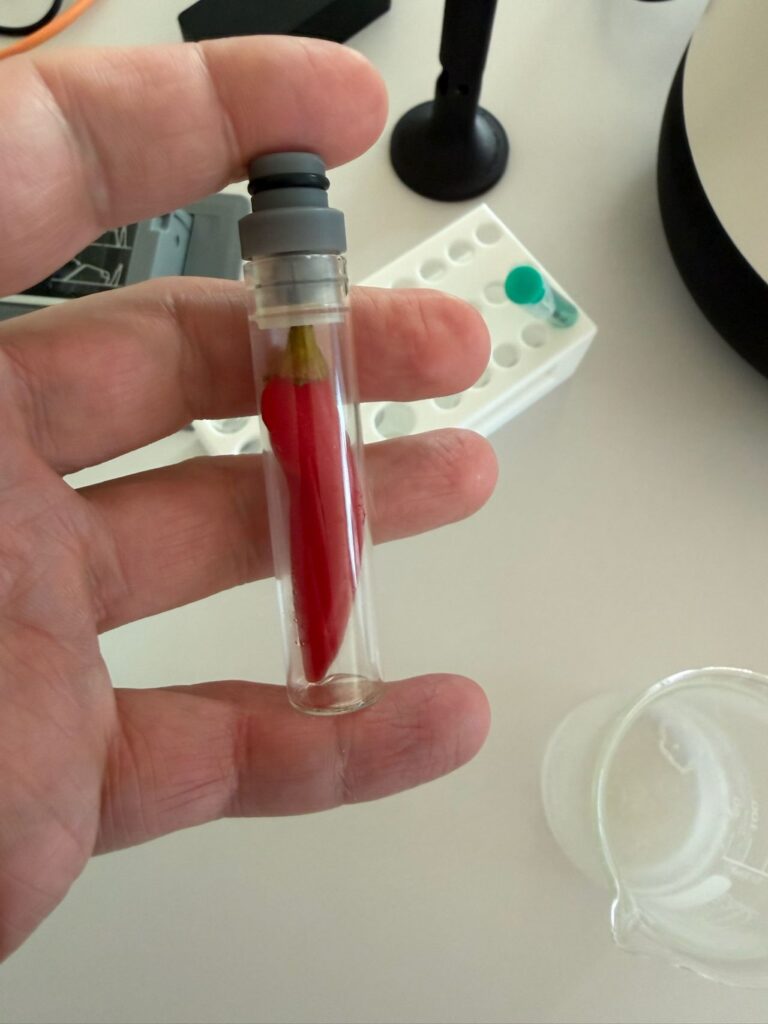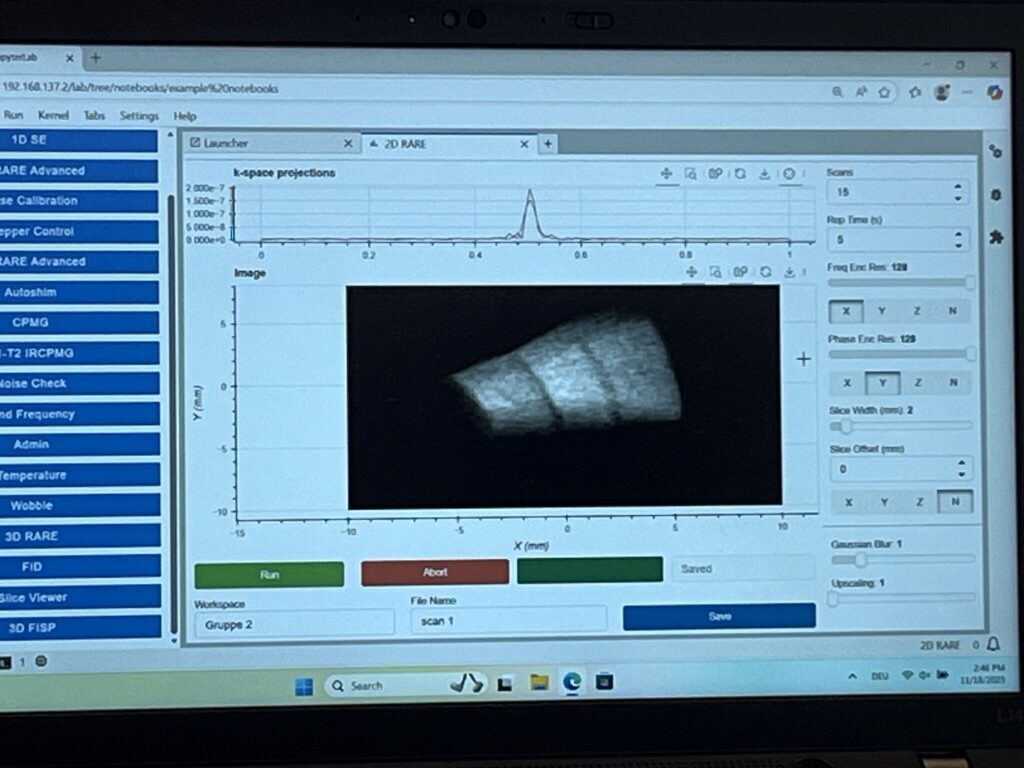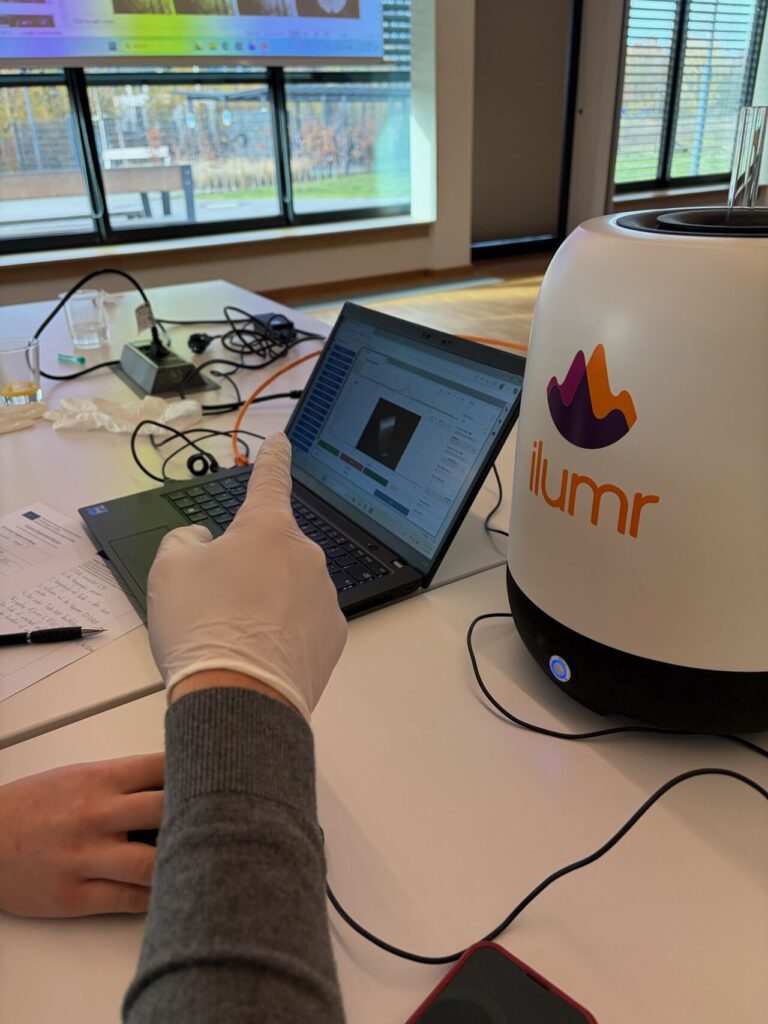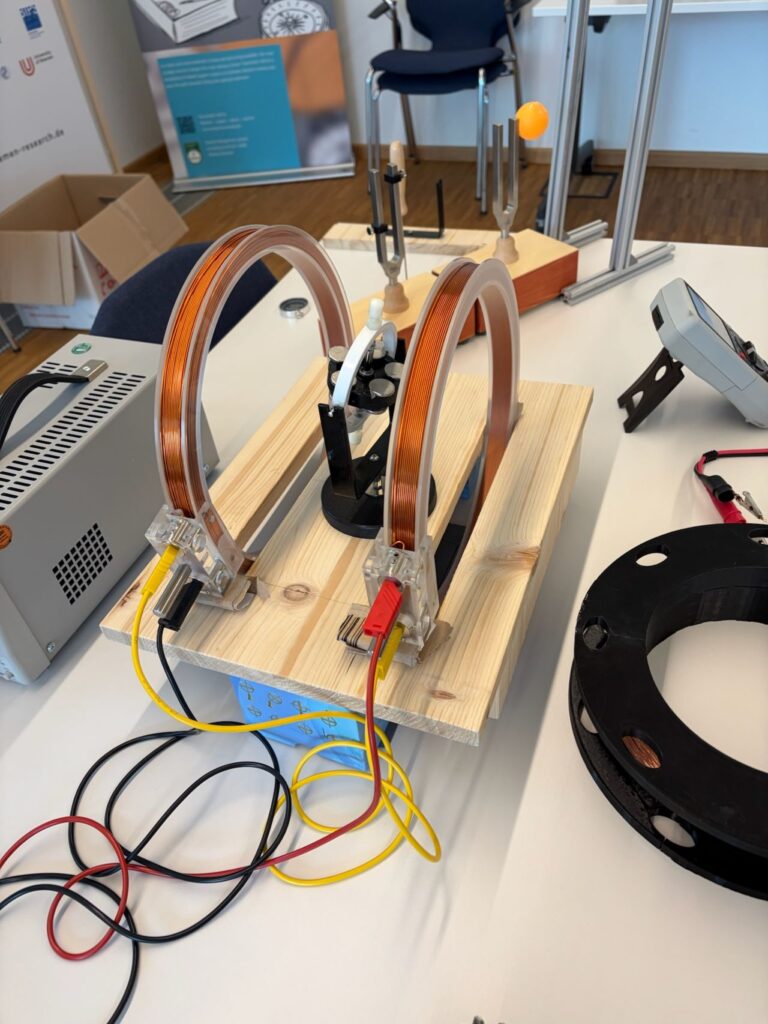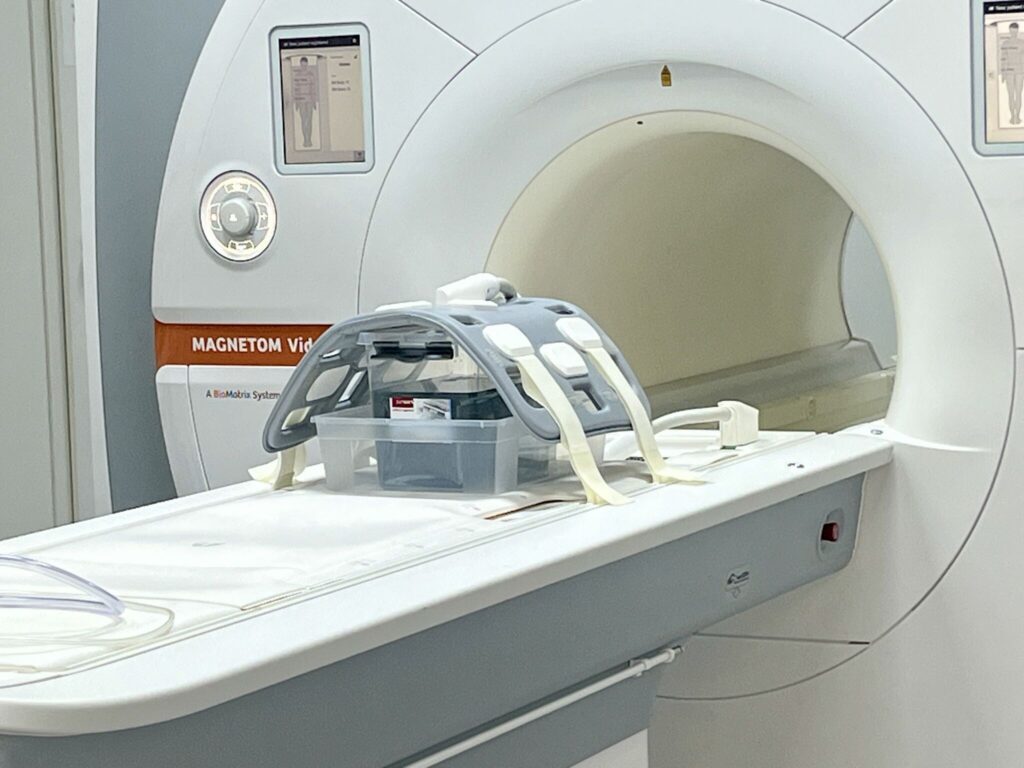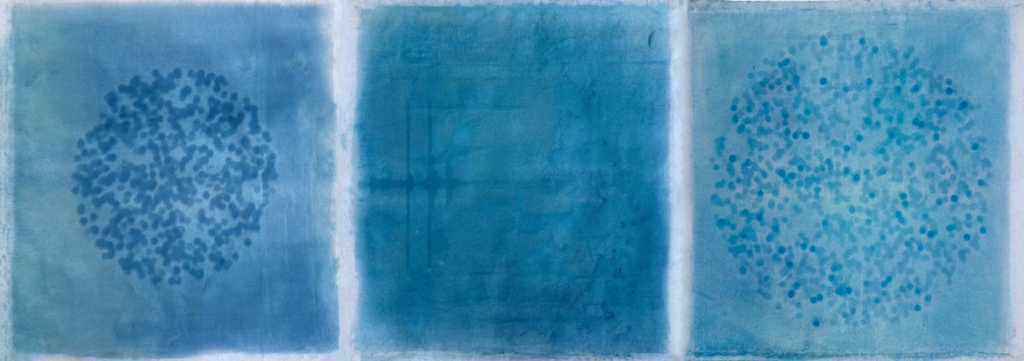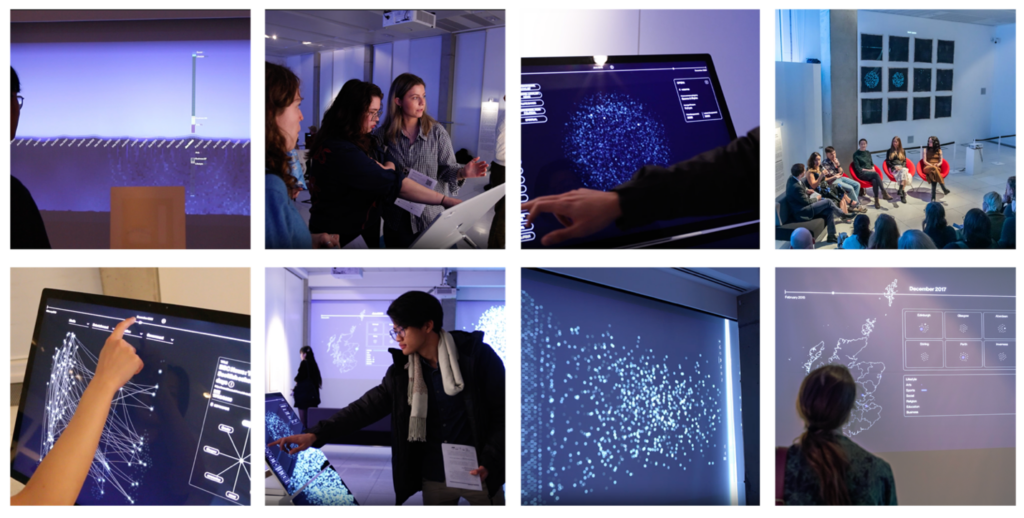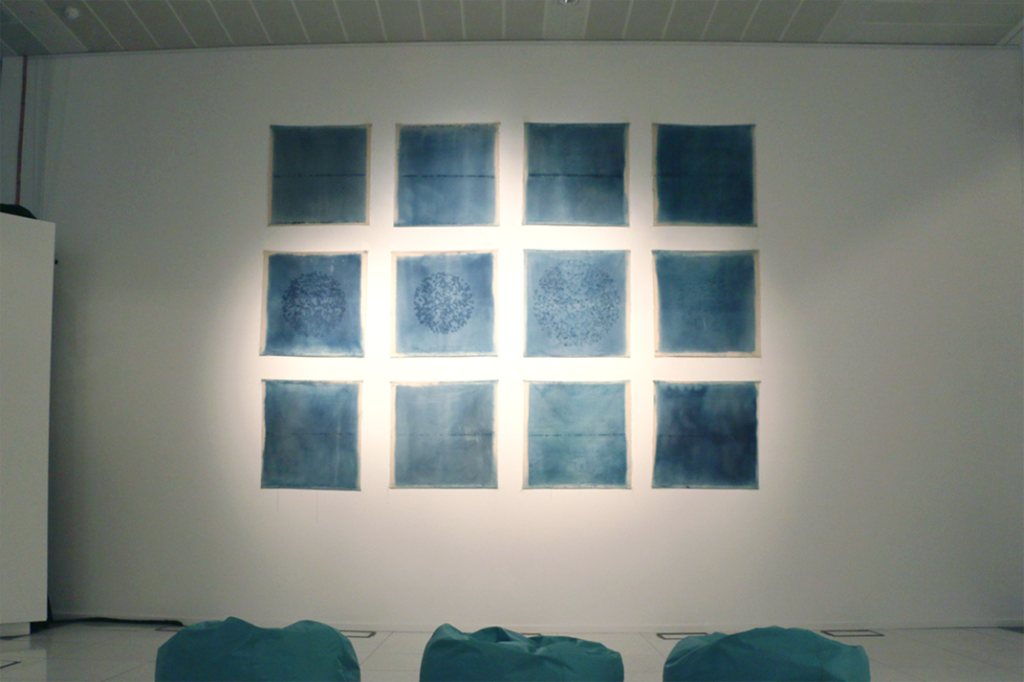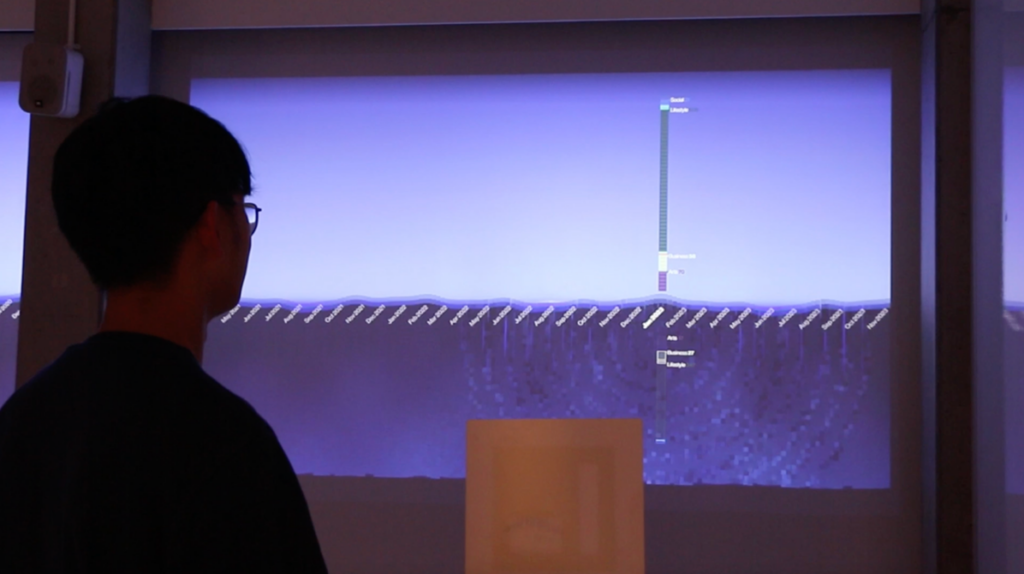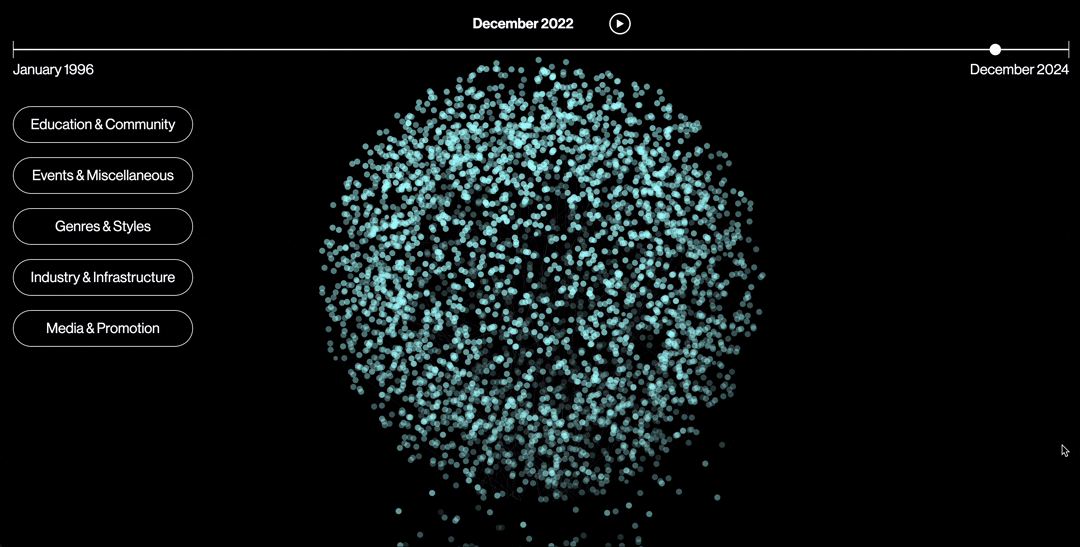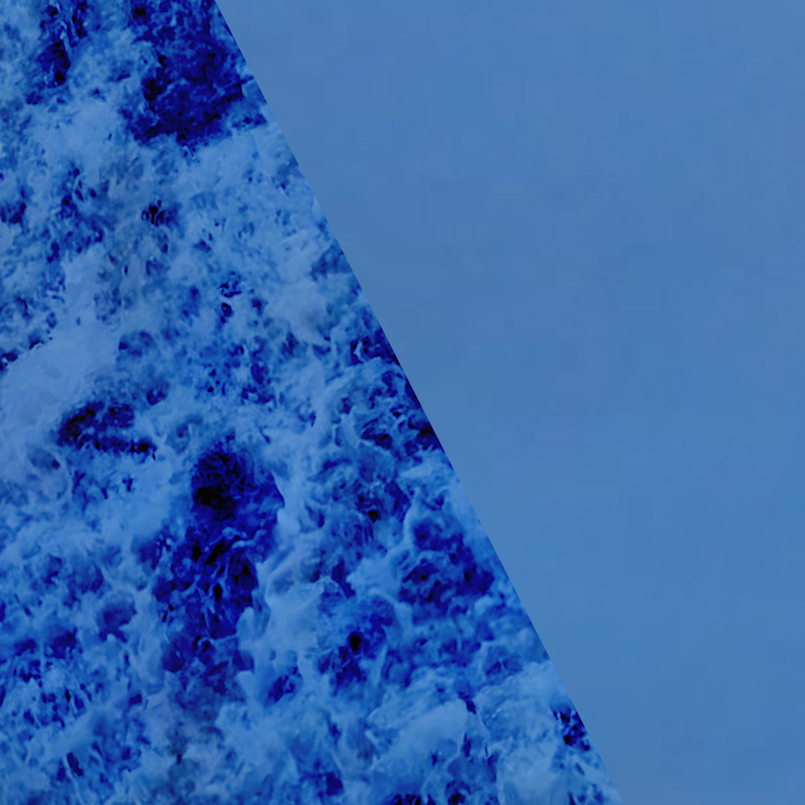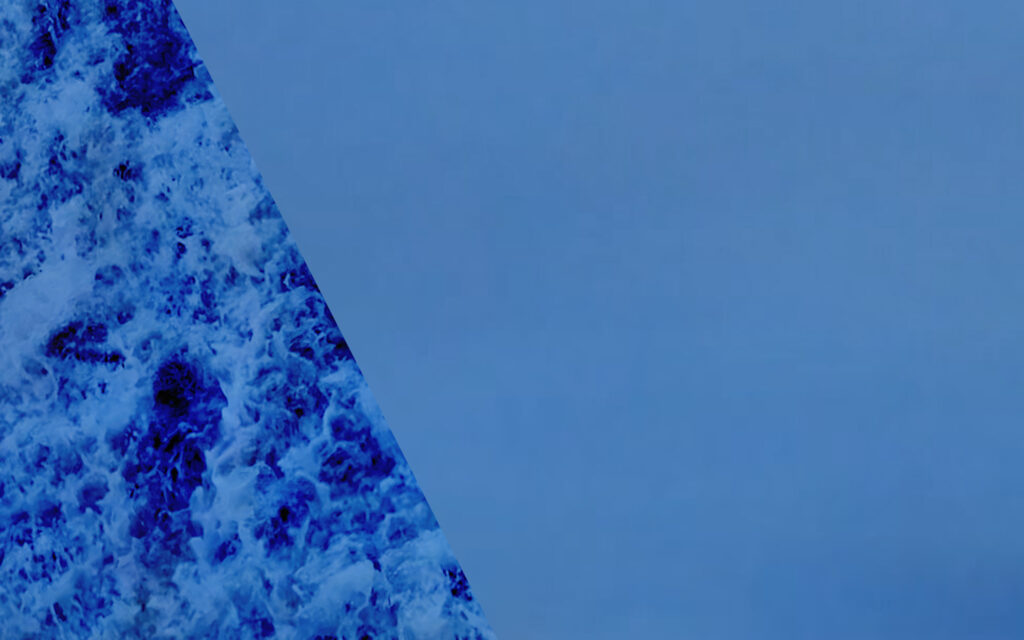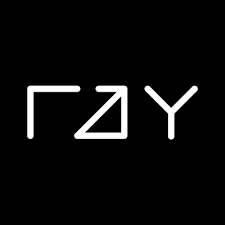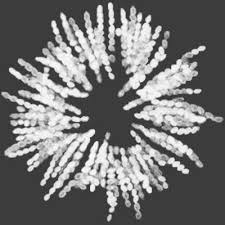Join us for this Artist Talk and Reception to mark the launch of Right to Roam City Screens showcase, the first iteration of this new body of work by Sarah Calmus.
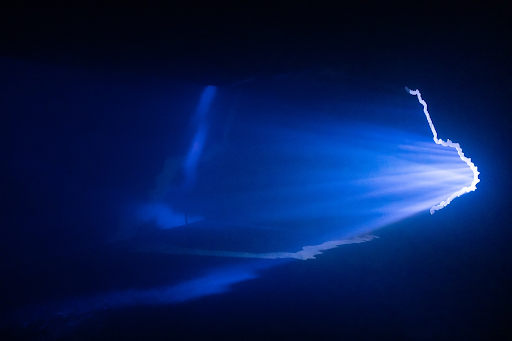
Right to Roam
An expansive enquiry into freedom of movement through the lens of the river Forth
Join us for this Artist Talk and Reception to mark the launch of Right to Roam City Screens showcase, the first iteration of this new body of work by Sarah Calmus. This new body of work extends Calmus’ ongoing creative research into water, exploring it as a living body with a voice and not primarily as a resource. She is particularly interested in exploring the intersections of climate change, data, and the fundamental freedom to move.
Come along to this talk, to hear more about this work in progress and to immerse yourself in these first visual experiments by Calmus created specifically for Inspace City Screens, inviting you to connect and find commonality through the lens of water.
Image Credit: Installation photo of ‘Oh vatten, Oh uisge (Oh water, Oh water)’, by Sarah Calmus, Hidden Door 2025. Photography by Chris Scott
Artist Talk and Reception
Date: 12 Feb 2026
Times: 18:00-20:00 (2hrs) | Free/Ticketed
Location: Inspace, 1 Crichton St, Edinburgh, EH8 9AB
Audience: General public
Venue Access features: Accessible toilets, Assistance dogs welcome, Baby changing facilities, Seating, Step-free access, Wheelchair accessible
Event Running Order:
18:00 Doors Open
18:15 Artist Talk with audience Q&A
19:00 Reception
20:00 Event End
This event has limited capacity and so registration is preferred. Drop-ins are welcome, but participants with tickets are guaranteed entry.If you have any enquiries about the events and venues, please contact event organisers at designinformatics@ed.ac.uk
Please note this event will be recorded and photographed by Design Informatics and Studio Sumlacs – Video and Photographs will be used for future marketing, promotional, reporting and archival purposes. If you would prefer not to be filmed or photographed, please let us know at the event.
Data Protection Statement
How we use and store your data – In providing this information, you are giving explicit consent for us to use your data in our programme and event monitoring, reporting and evaluation processes. The data is managed confidentially. Your data will be collected and held by the Institute for Design Informatics, University of Edinburgh (who operate Inspace), it will also be shared with event partners and organisations for this event/talk (e.g. Studio Sumlacs). Your data will only be reported or published in anonymous aggregated forms and will always be processed in accordance with the Data Protection Act 2018 and therefore also in accordance with the General Data Protection Regulation (GDPR).
Data retention period – We will hold this information for a maximum period of 5 years from the date of the event, after which it will be disposed of. Please read the University’s privacy and Data Protection notice (https://data-protection.ed.ac.uk/notice) for further information.
Opt out – If you do not wish to share your information, or would like to modify your consent to collection and processing of personal information, please email us at: designinformatics@ed.ac.uk
Speaker
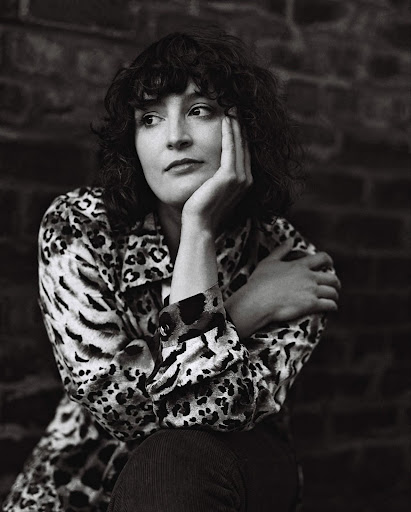
Sarah Calmus, Right to Roam project lead, is an interdisciplinary artist, programmer, and creator of large-scale immersive installations and provocations, working across a multitude of mediums such as light, sound and print. Accessible, multisensory, sustainably produced experiences are central within Calmus’s practice, where works often draw focus on environmental concerns that build equity for participators and critique and explore ecosystems of varying scales. Interested in building spaces to connect and reflect, her practice is intentionally interdisciplinary and participatory, viewed as a series of experiments underpinned with explorations into interaction.
If you have any enquiries about Inspace programming and the venue, please contact us at designinformatics@ed.ac.uk.
Uisge
Right to Roam City Screens showcase

This event is part for Right to Roam City Screens showcase marking the launch of Uisge, seven screen projected moving image work by Sarah Calmus which reflects on ideas of water as a living body by exploring the voice of the river Forth. Usige is the first presentation of Right to Roam, an expansive enquiry into freedom of movement through the exploration of water, with focus on the river Forth, which will be followed by an extended immersive installation in Inspace in May 2026.
Inspace City Screens
Dates: 9-22 Feb, 2026
Times: 17:00 – 1:00 Daily | Free/Street viewing daily
Location: Inspace City Screens Exhibition, Potterrow, Edinburgh
Right to Roam is a project by led by Sarah Calmus, funded by Creative Scotland and supported by Inspace and the Institute for Design Informatics.
Image Credit: Uisge film still, Sarah Calmus 2026
Supported by



